Top 10 Nutrients to Improve Thyroid Health
Your thyroid is a butterfly-shaped organ that plays a critical role in your metabolism, energy production, temperature, and even your heart, brain, and digestive health. Thyroid function is very much determined by our micronutrient levels and our digestive health. In fact, one of the best ways to support a healthy thyroid and overall well-being is with an optimal nutrition plan.
Thyroid function and its metabolic roles are reliant on nutrient feedback signals. Without specific nutrients, there is a lack of expression of a variety of physiological activities that ultimately cause a decline in total health, which is why I’m so passionate about sharing the best nutrients to improve thyroid health today.
By reading this article, you will understand the importance of thyroid health. I will discuss what hypothyroidism is and the main symptoms of hypothyroidism. I will also go over hyperthyroidism and the main symptoms of hyperthyroidism.
You will learn about the major root causes of poor thyroid health. Finally, I will share the top nutrients to improve your thyroid health naturally.

Importance of Thyroid Health
Your thyroid is a small, butterfly-shaped gland located at the base of your neck. It plays an important role in how your body functions. Your thyroid produces various thyroid hormones that regulate metabolism, energy production, temperature, and even how your heart, brain, and digestive system work.
Your thyroid-related hormones include primary thyroid hormones, inactive or intermediate forms, and regulatory hormones. Your primary thyroid hormones include Thyroxine (T4) and Triiodothyronine (T3).
T4 is the main hormone produced by the thyroid gland and serves as a precursor to be converted into T3 in the body. T3 is the active thyroid hormone that regulates metabolism, energy, and cellular activity.
It is made through the conversion of T4 in the liver and other tissues. Reverse T3 (rT3) is the inactive or intermediate form of T3 made when the body converts T4 during times of illness, stress, or inflammation, while also blocking metabolic activity. Regulatory hormones are not made by your thyroid but are absolutely essential for thyroid function.
They include Thyrotropin-Releasing Hormone (TRH) and Thyroid-Stimulating Hormone (TSH). TRH is made by the hypothalamus. It stimulates the pituitary gland to release TSH is made by the pituitary gland, and it signals your thyroid gland to produce and release T4 and T3.
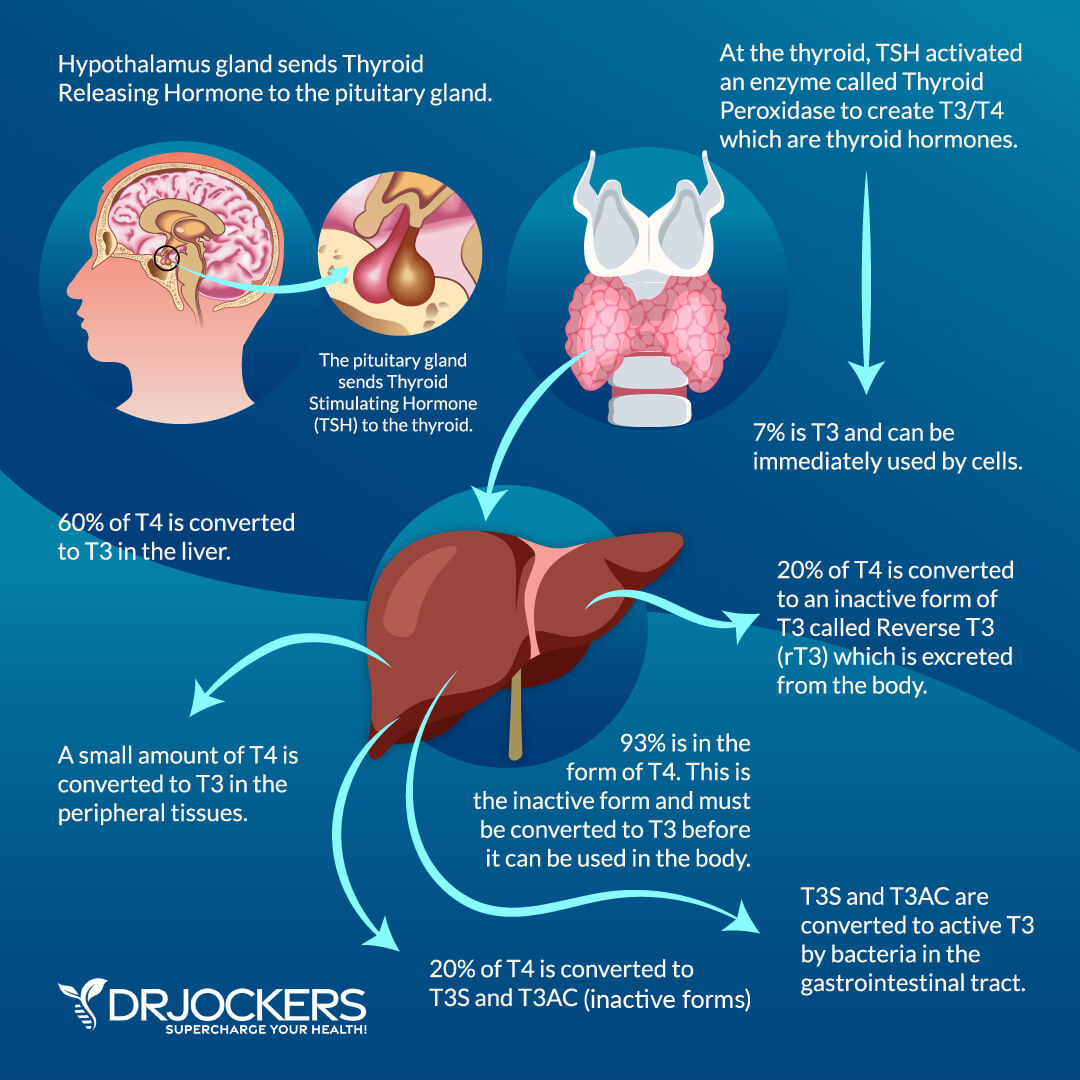
Your thyroid influences every cell of your body and affects most areas of your health and well-being. Thyroid dysfunction may lead to a variety of symptoms, including fatigue, weight changes, and mood issues, to hair loss, constipation, and menstrual irregularities. You may develop various thyroid-related disorders, from underactive and overactive thyroids, which I will go over in the next sessions.
In functional medicine, we look at all your thyroid hormone values, but we also look beyond lab values. We can identify sub-clinical lab values to catch thyroid-related problems before a full clinical thyroid diagnosis can develop. You can read this in-depth article on how to properly test thyroid levels to understand more.
We also look at the root causes of any imbalances, including gut health, chronic inflammation, chronic stress, nutritional imbalances, autoimmune reactions, and so on. When addressing thyroid issues, we aim to address the root causes of your problems through a comprehensive approach to restore balance naturally, instead of just hormone replacement therapy.
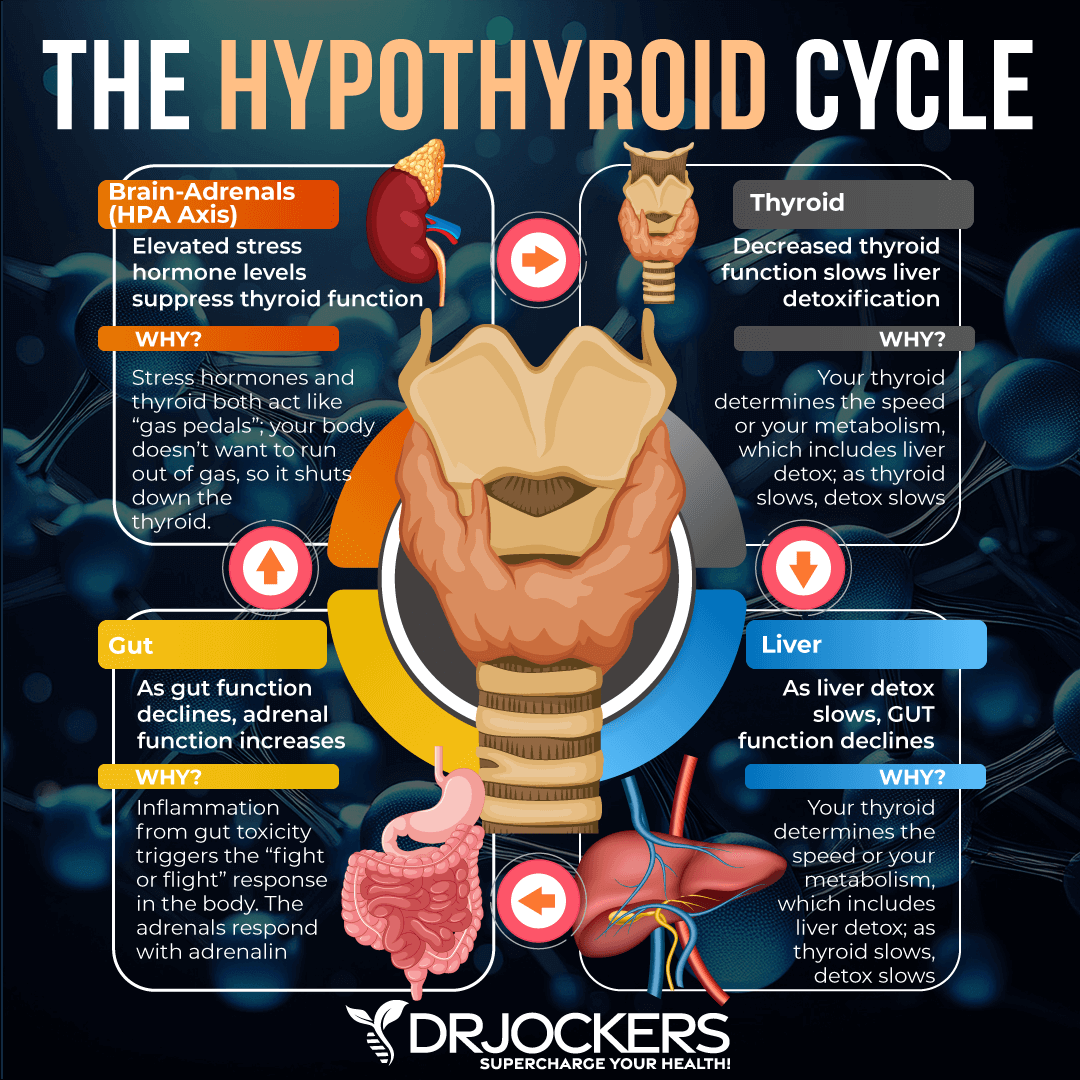
Symptoms of Hypothyroidism
Hypothyroidism occurs when your thyroid gland doesn’t make enough thyroid hormones to meet the body’s needs, which can slow down metabolic processes and cause various symptoms. Hypothyroidism can be autoimmune and non-autoimmune.
Non-autoimmune hypothyroidism may develop because of iodine deficiency, pituitary or hypothalamic dysfunction, chronic stress, environmental toxin exposure, certain medications, which may interrupt thyroid hormone synthesis or conversion.
Autoimmune hypothyroidism develops when the immune system mistakenly attacks thyroid tissue, causing thyroid damage and impairment to hormone production. The most common form of autoimmune hypothyroidism is Hashimoto’s thyroiditis. Regardless of cause, hypothyroidism and an underactive thyroid can affect energy, metabolism, and overall physiological balance and cause a long list of symptoms.
Symptoms of hypothyroidism may include:
- Tiredness and fatigue
- Weight gain
- Hoarse voice
- Muscle aches or stiffness
- Muscle weakness
- Bradycardia (slowed heart rate)
- More sensitivity to cold
- Constipation
- Menstrual cycles that are heavier than usual or irregular
- Dry skin
- Puffy face
- Coarse hair and skin
- Thinning hair and hair loss
- Depression
- Memory issues
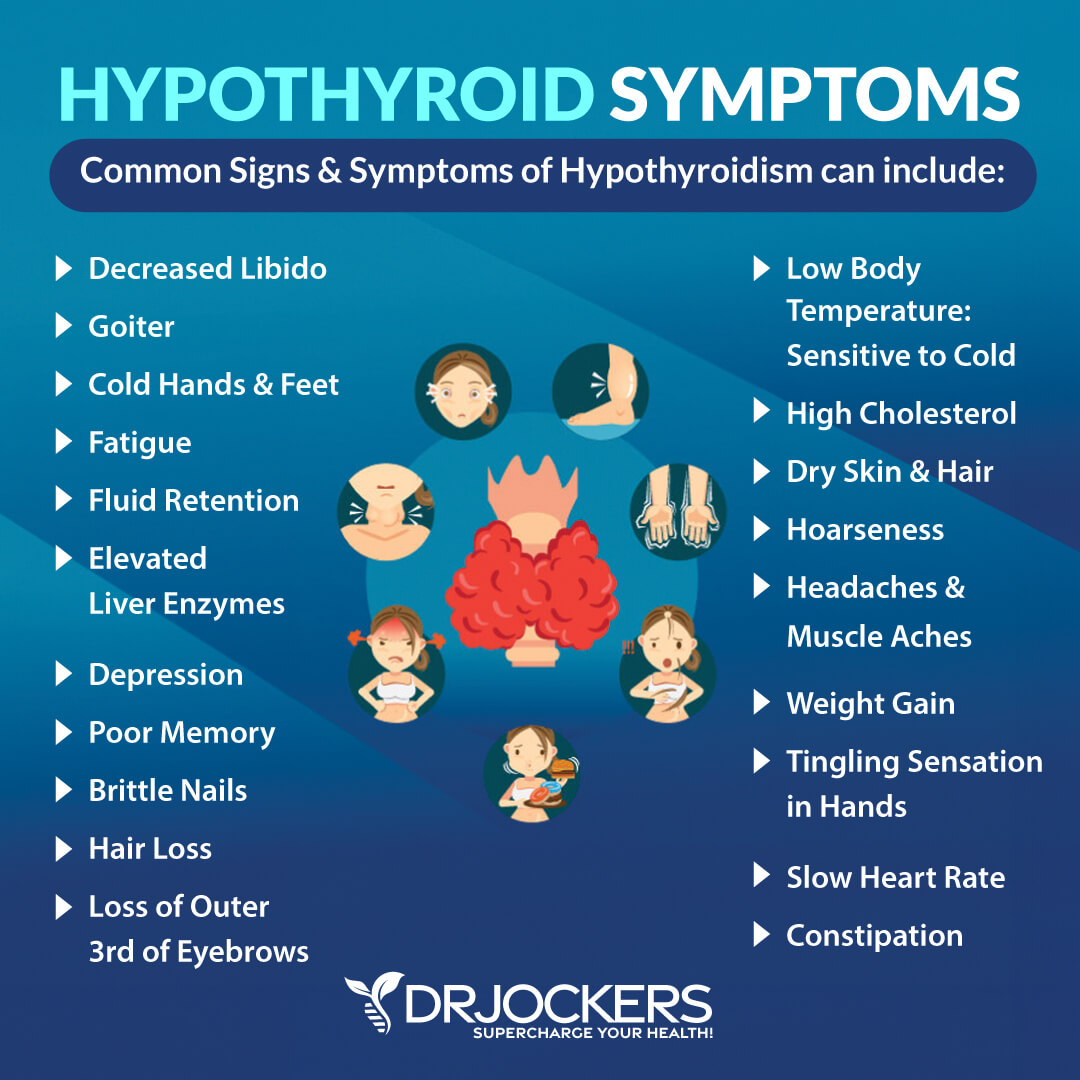
Symptoms of Hyperthyroidism
Hyperthyroidism happens when the thyroid produces excessive amounts of thyroid hormones, which can cause an overactive metabolism. Hypothyroidism may be autoimmune or non-autoimmune.
Non-autoimmune hyperthyroidism may develop because of thyroid nodules that produce hormones independently (toxic multinodular goiter or adenoma), inflammation of the thyroid (thyroiditis), or excessive iodine intake.
Autoimmune hyperthyroidism, the most common type being Graves’ disease, develops when your immune system makes antibodies that stimulate the thyroid to create more thyroid hormones than your body needs, regardless of the cause and type.
Hyperthyroidism and an overactive thyroid that can throw off hormonal balance, cause significant stress on multiple organ systems, and lead to a list of symptoms. You can read our detailed article on hyperthyroidism here
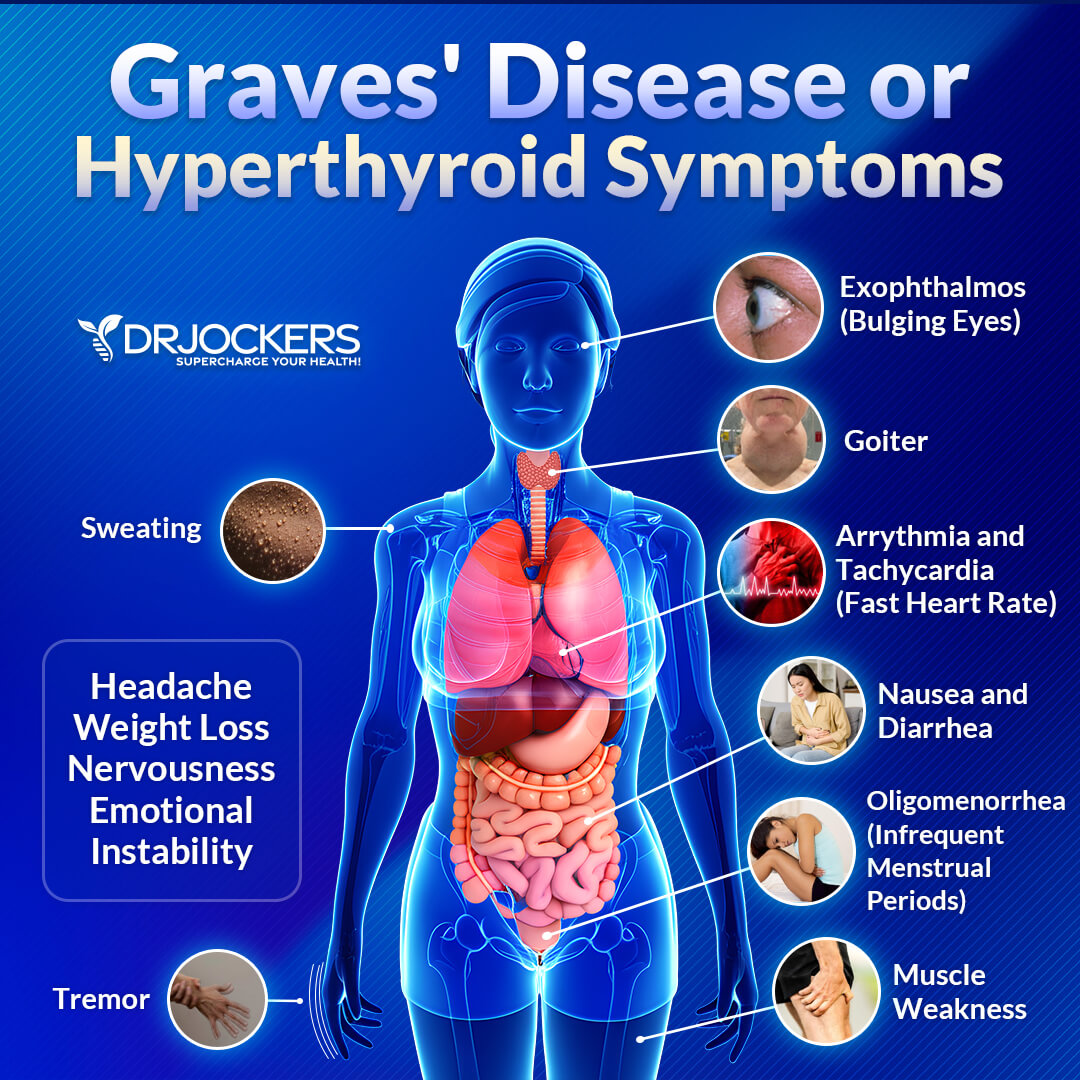
Symptoms of Hyperthyroidism May Include:
- Fatigue and tiredness
- Sleep issues
- Muscle weakness
- Weight loss
- Tachycardia (fast heartbeat)
- Arrhythmia (irregular heartbeat)
- Heart palpitations.
- Increase in hunger
- Anxiety, nervousness, and irritability
- Tremor, usually a small trembling in the hands and fingers
- Changes in bowel movements
- Changes in menstrual cycles
- Increased sensitivity to heat
- Sweating
- Goiter (enlarged thyroid gland)
- Warm or moist skin
- Thinning skin
- Fine, brittle hair
Root Causes for Poor Thyroid Health
The root causes of poor thyroid health include inflammation, poor liver/gut function, blood sugar problems, toxins, infections, stress & poor sleep, and nutrient deficiencies. Let’s look at each of the underlying factors one by one.
Chronic Inflammation
Chronic inflammation is the root cause of most chronic health issues. It can significantly disrupt your thyroid health. When your immune system is chronically activated, it may trigger the development of autoimmune thyroid problems, including Hashimoto’s thyroiditis or Graves’ disease. It may also worsen the symptoms of autoimmune thyroid issues.
The results of a 2009 – 2012 study published in 2024 in Frontiers in Endocrinology (Lausanne) have found that chronic inflammation may increase the development and progression of thyroid disease, and anti-inflammatory treatment might reduce thyroid abnormalities (1).
Chronic inflammation may also interfere with the conversion of T4 to T3, which can result in low energy levels and slowed metabolism. Identifying and addressing the reasons behind chronic inflammation, including poor gut health, food sensitivities, chronic infections, chronic stress, environmental toxins, and various lifestyle factors, may help restore healthy thyroid function.
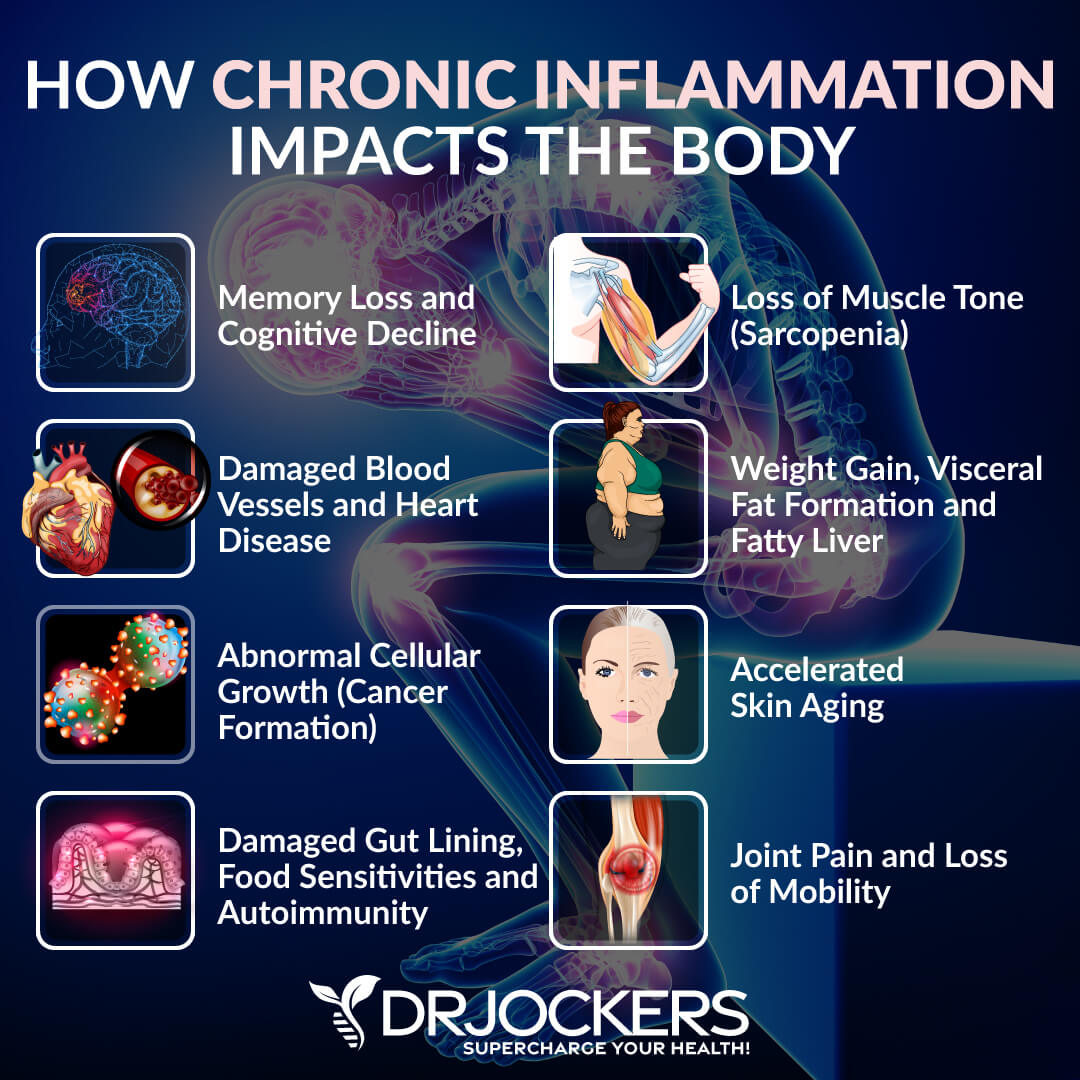
Poor Liver and Poor Gut Function
Your liver and gut both play a critical role in thyroid hormone metabolism and activation. While around 205 of thyroid hormone conversion from T4 to T3 happens in the gut, the remaining occurs in your liver. Not only that poor liver or gut health increase the risk of thyroid disease, but poor thyroid function may also contribute to liver and gut problems.
A 2023 study published in BMC Gastroenterology has found a link between low thyroid function and liver problems, and that low thyroid levels can increase the risk of advanced fibrosis in those with fatty liver disease (2).
According to a 2022 stdy published in Frontiers in Endocrinology (Lausenne), due to the gut-thyroid axis, referred to as the gut-thyroid axis, there is a link between gut microbiome balance, iodothyronine conversion and storage, immune regulation, and thyroid health (3).
High environmental toxin burden, an inflammatory diet, gut microbiome imbalances, poor detoxification, and chronic stress can interrupt liver and gut function, cause gut microbiome imbalances, increase toxicity, and increase chronic inflammation, hormonal imbalance, and the risk of thyroid issues. Optimizing gut and liver health helps to improve thyroid performance and hormonal balance.
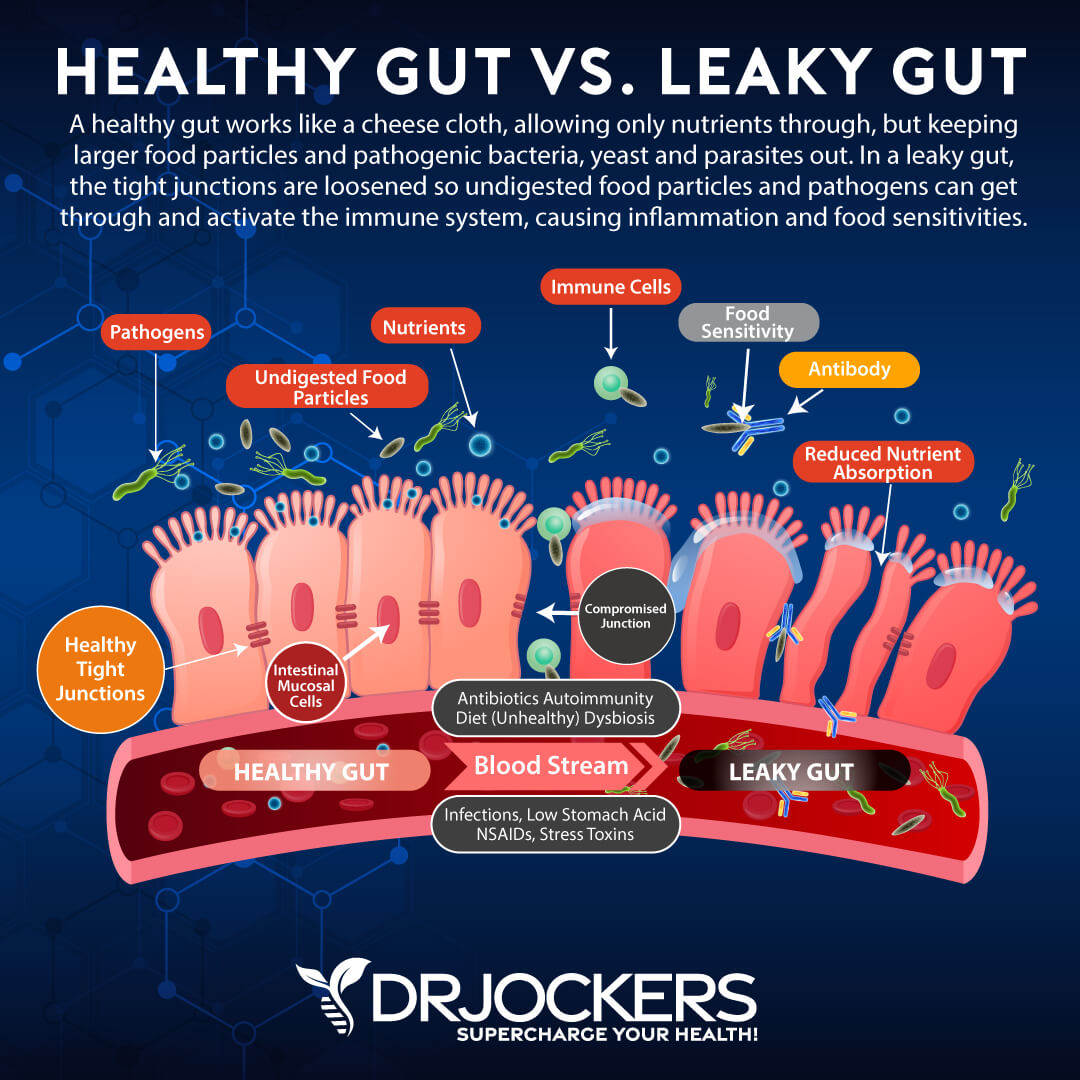
Blood Sugar Problems
Blood sugar imbalances, including frequent blood sugar spikes followed by crashes, insulin resistance, prediabetes, and type 2 diabetes, can contribute to an array of health issues, including hormonal imbalances and thyroid problems. According to a 2021 research published in Cureus, thyroid dysfunction may increase the risk of type 2 diabetes, while diabetes can put a strain on the thyroid, causing problems (4).
According to a 2012 study published in Thyroid Research, there is also a link between high cortisol and high thyroid-stimulating hormone levels (5). High levels of insulin and cortisol can suppress thyroid hormone conversion and increase inflammation.
Unstable blood sugar may also put a strain on adrenal function, further distressing your hormonal balance. Stabilizing blood sugar through a low-sugar, balanced diet, good lifestyle choices, and supplementation can improve both thyroid and overall metabolic health.
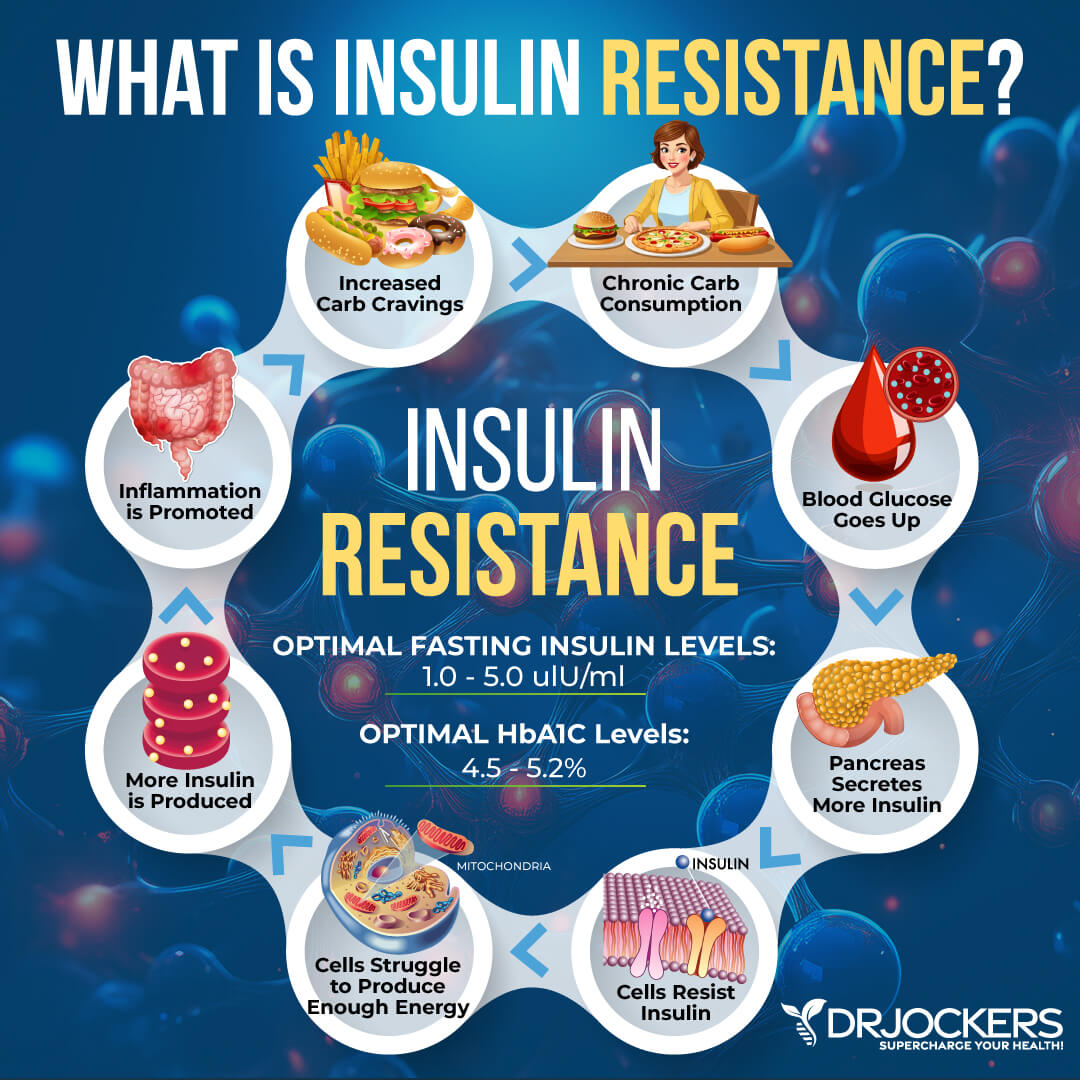
Environmental Toxins
According to 2024 research published in Frontiers in Endocrinology, environmental factors, including exposure to chemicals and pollution, can impact thyroid health and increase the risk of thyroid disease later in life (6).
Environmental toxins, including heavy metals, pesticides, herbicides, plastics, and other chemicals, may interfere with thyroid function by increasing chronic inflammation, disrupting hormone production, binding to iodine receptors, creating gut microbiome imbalances, disrupting liver function, and interfering with detox pathways.
These toxins may also provoke autoimmune activity against the thyroid. Reducing environmental toxin exposure, supporting detoxification are important for protecting your thyroid from toxic stress and reducing the risk of thyroid issues.
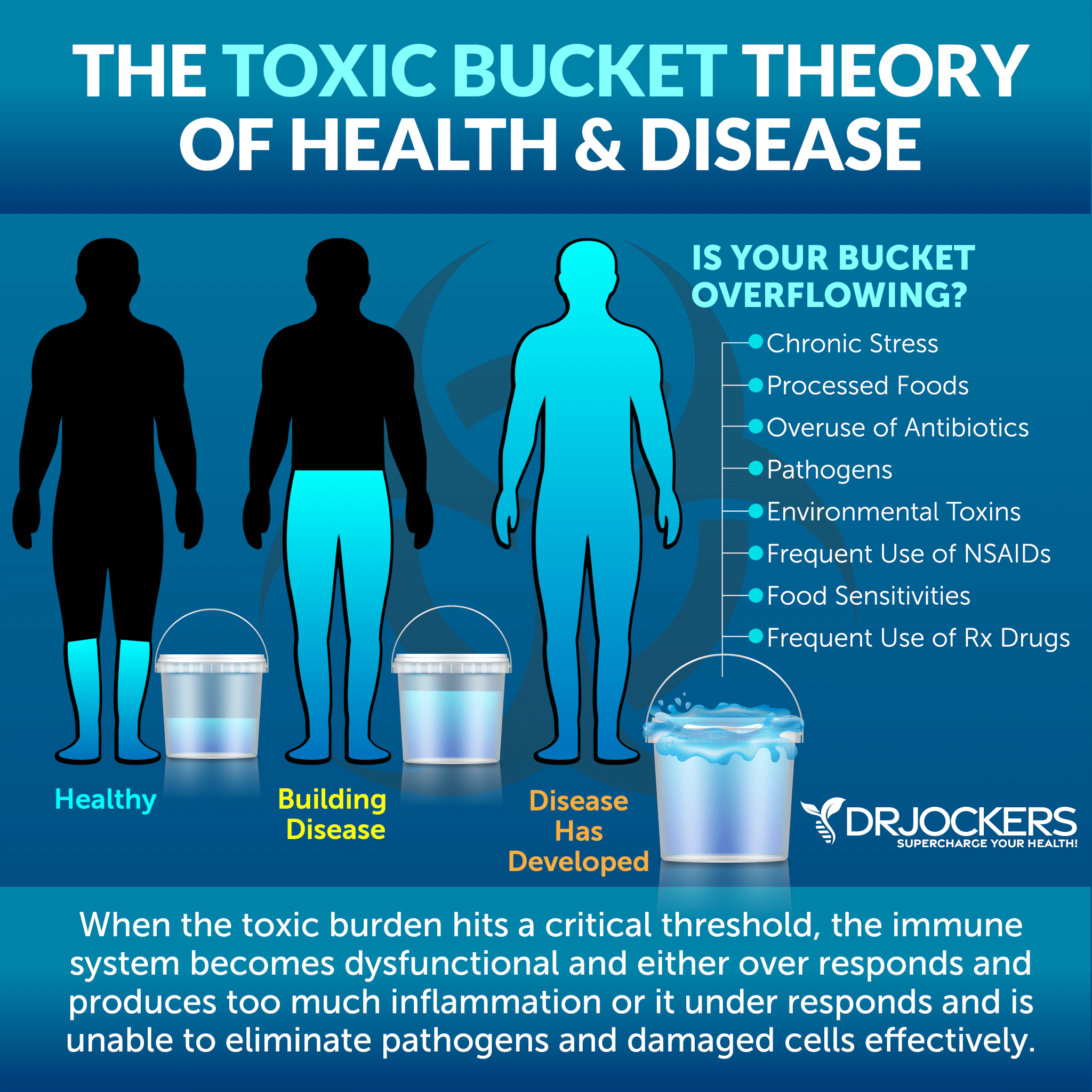
Chronic Infections
Chronic infections, including Epstein-Barr virus (EBV), Lyme disease, Hepatitis C virus (HCV), parasites, Helicobacter Pylori (H. pylori), or other gut infections, may result in immune dysregulation and chronic inflammation, which can interrupt hormonal balance and increase the risk of thyroid disorders.
For example, according to a 2016 research published in the Central European Journal of Immunology, EBV may increase the risk of autoimmune thyroid disorders and other autoimmune conditions, though not the only cause (7).
A 2025 study published in Frontiers in Microbiology has also found that chronic viral infections, including herpes simplex virus (HSV), EBV, HCV, and human parvovirus B19 (B19V), may increase the risk of thyroid issues (8). A 2023 study published in the Journal of Clinical Medicine has also linked H pylori infections to autoimmune thyroid diseases (9).
Certain infections may even mimic thyroid proteins, which can confuse your immune system and result in autoimmunity. Through lab testing, we can find these underlying hidden infections, and by addressing them, we can successfully improve your thyroid health and decrease ongoing immune activation.
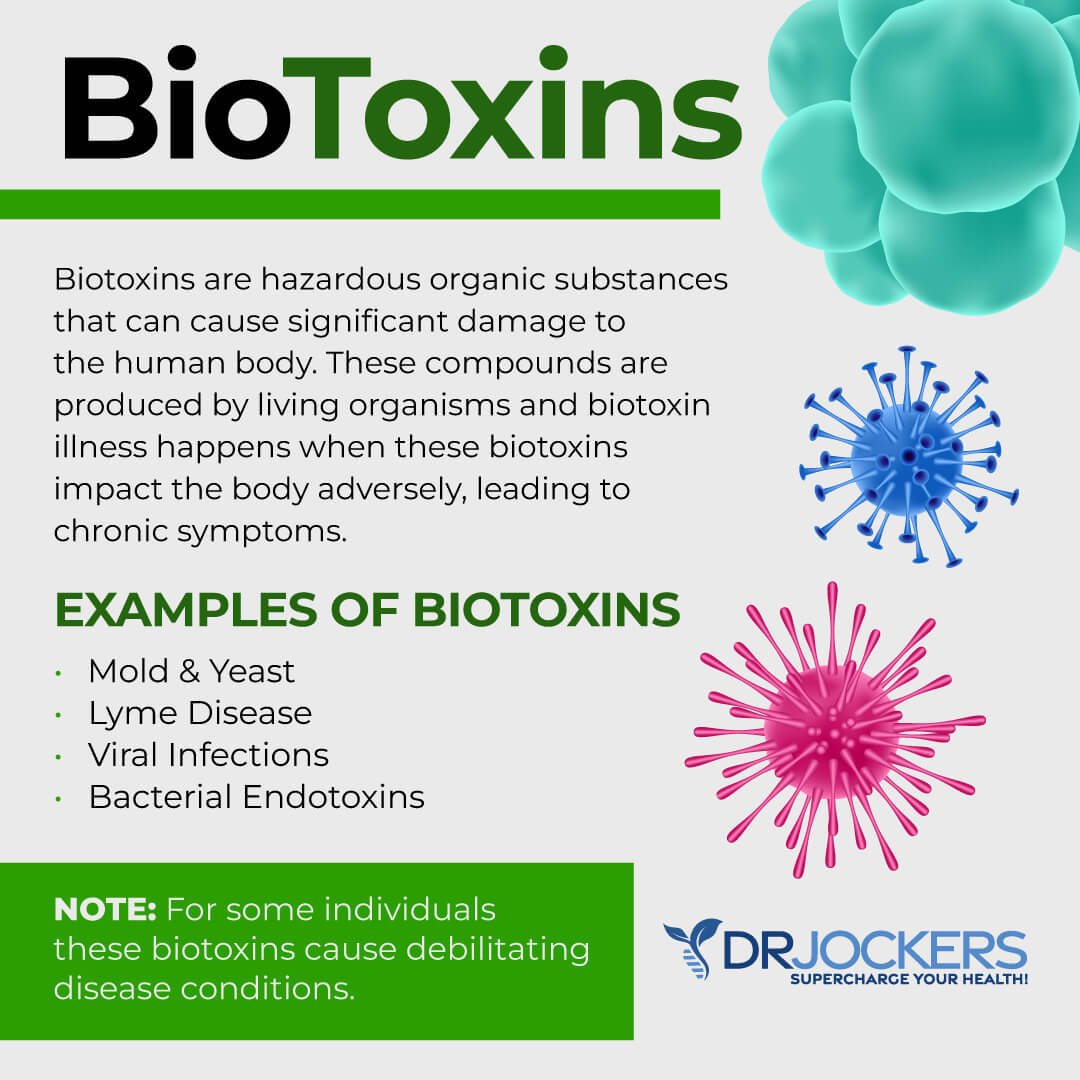
Chronic Stress and Poor Sleep
Low stress levels and plenty of restorative sleep are critical for your health. Chronic stress and poor sleep can disrupt hormonal balance, especially the balance between your adrenal and thyroid hormones.
According to a 2024 study published in the Journal of Family Medicine and Primary Care, stress can increase thyroid hormone levels and decrease TSH levels and may contribute to thyroid problems (10). A 2023 study published in PLoS One has found a link between sleep duration and thyroid health, connecting poor sleep to an increased risk of thyroid problems (11).
Chronic stress can increase cortisol levels, which can lead to the suppression of thyroid hormone production and conversion. Poor sleep can disrupt hormonal production, hormonal rhythms, and metabolism.
As a result, both can significantly disrupt thyroid function. Reducing stress levels and improving sleep can help to improve thyroid health and maintain optimal thyroid function and energy balance. You can learn more about my personal evening routine for amazing sleep here.

Nutrient Deficiencies
Thyroid health and hormone production depend on an array of vitamins and minerals. The main nutrients needed for optimal thyroid health including iodine, selenium, zinc, iron, B vitamins, and vitamin D. Deficiencies in these vitamins and minerals can significantly impair hormone synthesis, conversion, and cellular uptake and lead to thyroid dysfunction and related symptoms.
According to a 2023 study published in Frontiers in Endocrinology, severe iodine deficiency can increase the risk of thyroid problems (12). A 2023 study published in Frontiers in Endocrinology (Lausanne) has found that low levels of selenium may be linked to thyroid issues and selenium supplementation may help (13).
A 2024 study published in the International Journal of Molecular Sciences has linked both low zinc and low ferritin (iron) levels to an increased risk of autoimmune thyroid disorders (14).
A 2019 study published in Medical Principles and Practice has found that low levels of vitamin B12 and vitamin D may also contribute to autoimmune thyroid issues (15). By identifying underlying nutrient deficiencies and correcting them through diet and supplementation, we can improve thyroid function naturally.
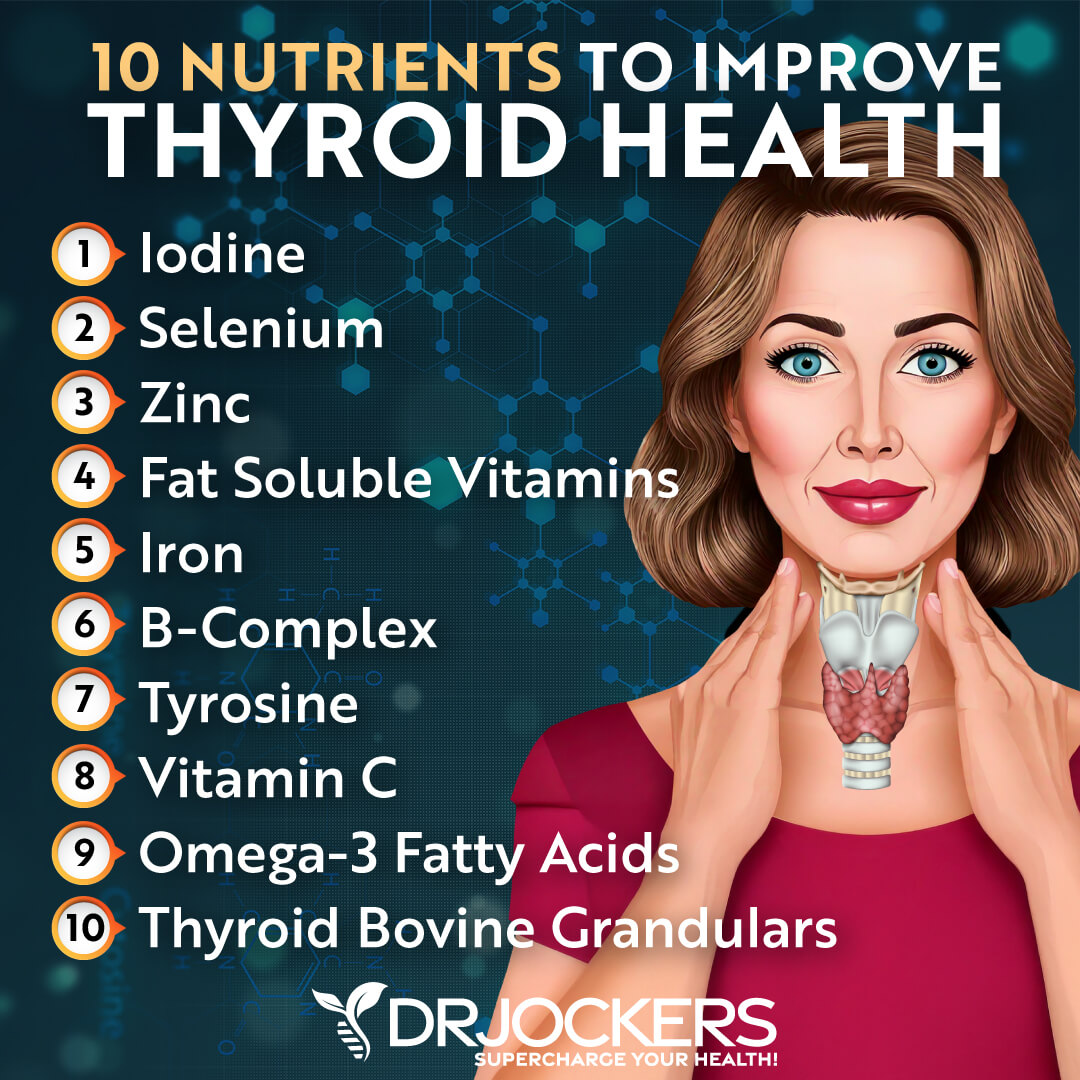
Top 10 Nutrients to Improve Thyroid Health
Now that you understand what underlying factors may play a role in poor thyroid health and what role nutrient deficiencies may have, let’s look at the top nutrients that may improve thyroid health.
Iodine
Iodine is one of the most important nutrients for thyroid health because it is necessary for the production of T3 and T4. As you know, these hormones regulate metabolism, growth, and development throughout the body. Without adequate iodine, your thyroid cannot synthesize these hormones effectively, which can result in thyroid problems.
According to a 2023 study published in Frontiers in Endocrinology, severe iodine deficiency can increase the risk of thyroid disease (12). However, both too little and too much iodine can disrupt normal thyroid function, making balance critical for optimal health. This means that it’s important to check your iodine levels before supplementing.
Low levels of iodine can cause the thyroid gland to degenerate. This may also affect the nervous system. It is important for brain function and may be protective against oxidative stress in the thyroid tissue. Iodine deficiency may be particularly dangerous in premature infants and children, since it is closely linked to the development of cognitive and neurological impairments.
As for food sources, the best source of iodine is marine foods, such as kelp, dulse, nori, and other sea vegetables. Moderate consumption of these foods can help maintain healthy iodine levels, especially in regions where iodine deficiency is common.
Iodine supplementation may be beneficial for some people; however, excessive iodine from supplements or overconsumption of seaweed can trigger thyroid dysfunction. This means that you should support your iodine with balanced, whole-food sources whenever possible and get tested for iodine deficiencies and talk to your doctor before supplementing.
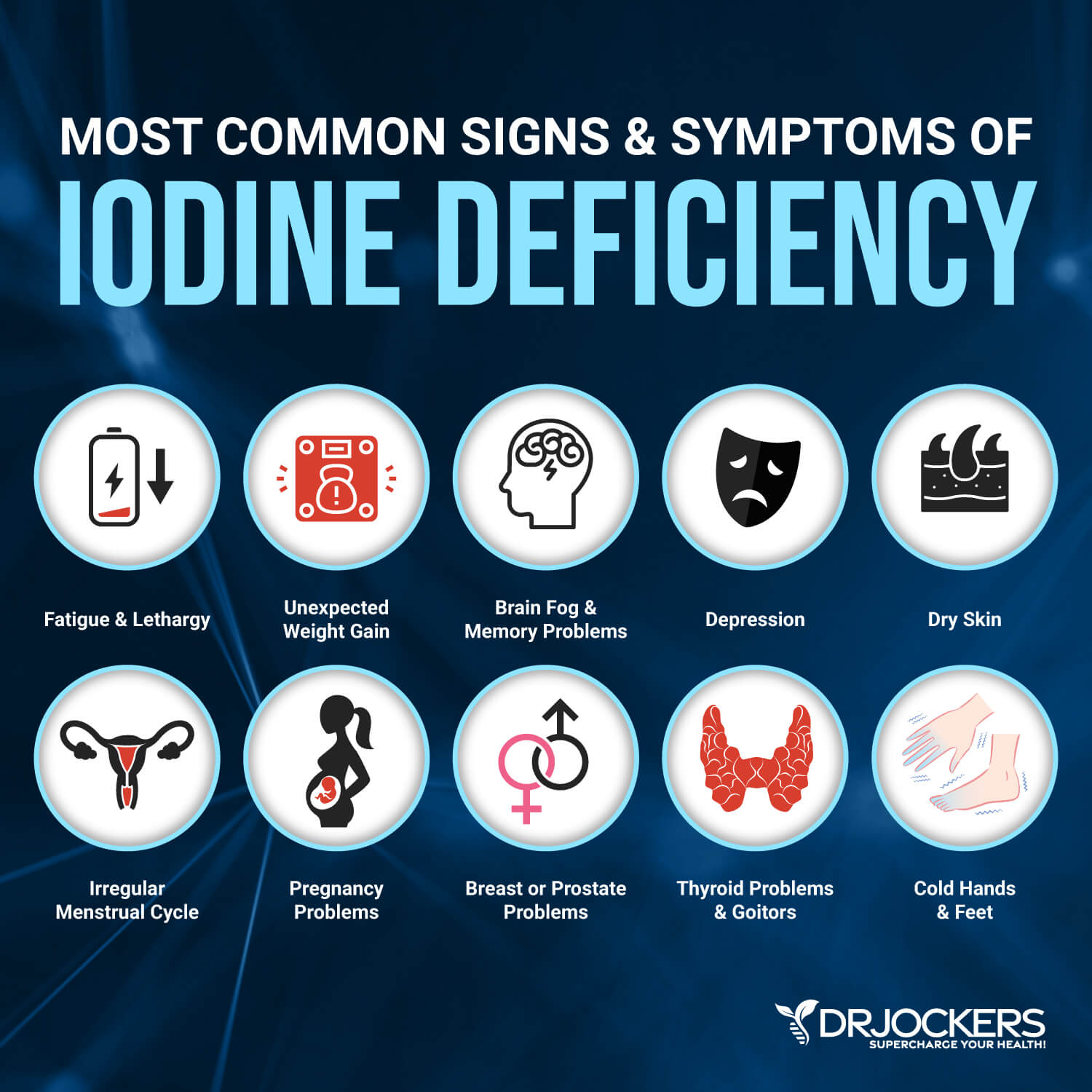
Selenium
Selenium is a trace mineral that plays a critical role in thyroid hormone production and metabolism. Selenium is necessary for the enzyme called 5’-deiodinase, which plays a role in the conversion the T4 into T3.
It also helps regulate the breakdown of rT3. Adequate selenium levels are necessary for maintaining optimal thyroid hormone balance and supporting energy metabolism, temperature regulation, and overall endocrine health.
Additionally, selenium can play a role as a potent antioxidant and offer immune-supporting benefits. It may help to reduce oxidative stress and chronic inflammation, which may impact your thyroid. Low selenium levels, on the other hand, are often seen in autoimmune thyroid disorders, including Hashimoto’s thyroiditis and Graves’ disease, as well as in immune dysfunction and chronic illnesses.
A 2023 study published in Frontiers in Endocrinology (Lausanne) has found that selenium supplementation may help to improve thyroid function (13). Brazil nuts are the best natural source of selenium. Eating just two can help to maintain your daily needs.
Sardines, tuna, eggs, and pasture-raised poultry are also good sources. Additionally, supplementing with selenium may be beneficial if you are dealing with low levels or have absorption issues. For supplementation, I recommend using a bioavailable form like L-selenomethionine to restore healthy selenium levels and optimize thyroid performance.
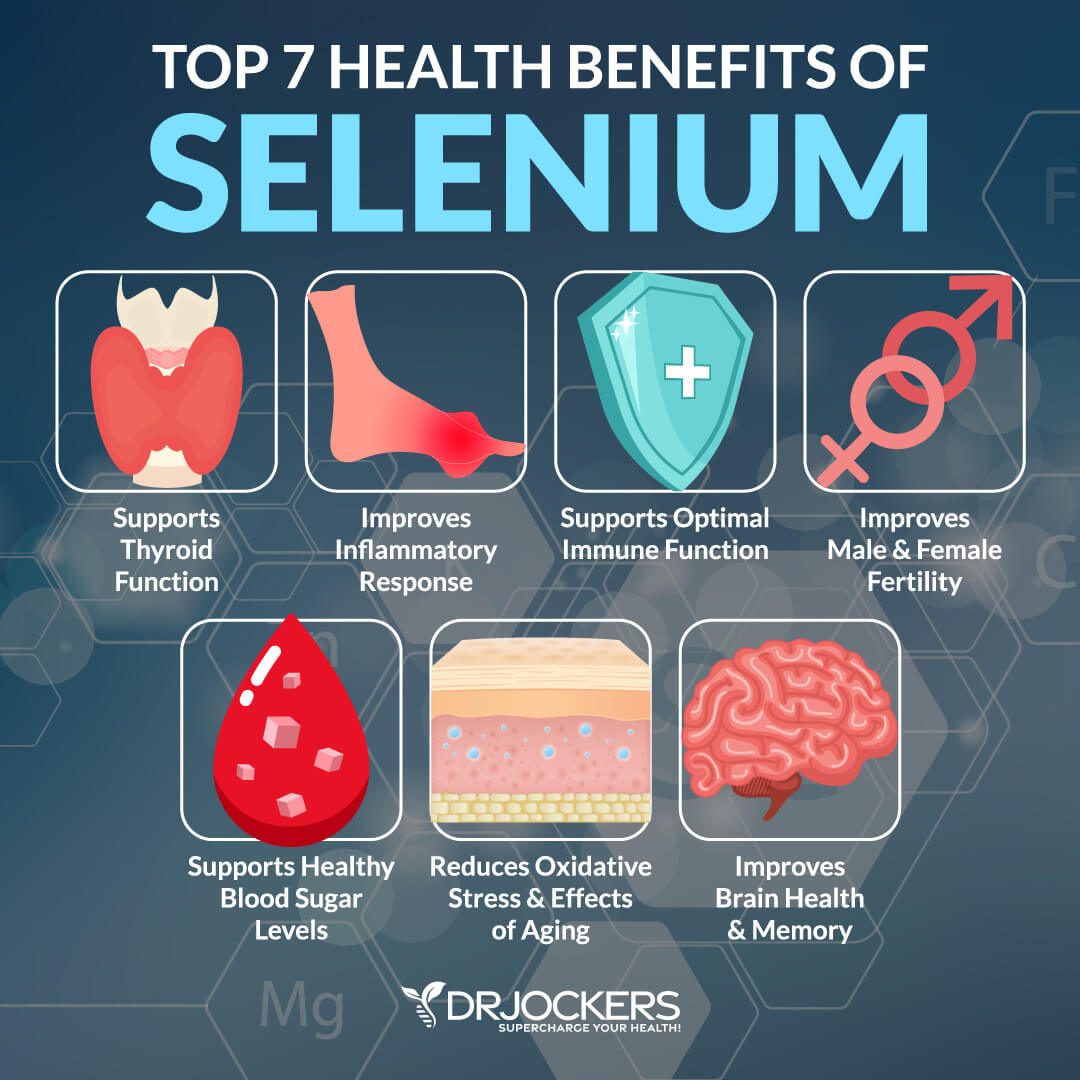
Zinc
Zinc is another essential nutrient for thyroid health. It is a trace mineral that plays a role in thyroid hormone synthesis and regulation. It is needed for TSH activity and the conversion of T4 into T3. A 2024 study published in the International Journal of Molecular Sciences has linked low zinc to an increased risk of autoimmune thyroid disorders (14).
Low zinc levels can result in poor immune function, fatigue, low metabolism, and slow thyroid hormone production. As an antioxidant, zinc may also help to reduce chronic inflammation, oxidative damage, and autoimmunity, which may all play a role in thyroid dysfunction.
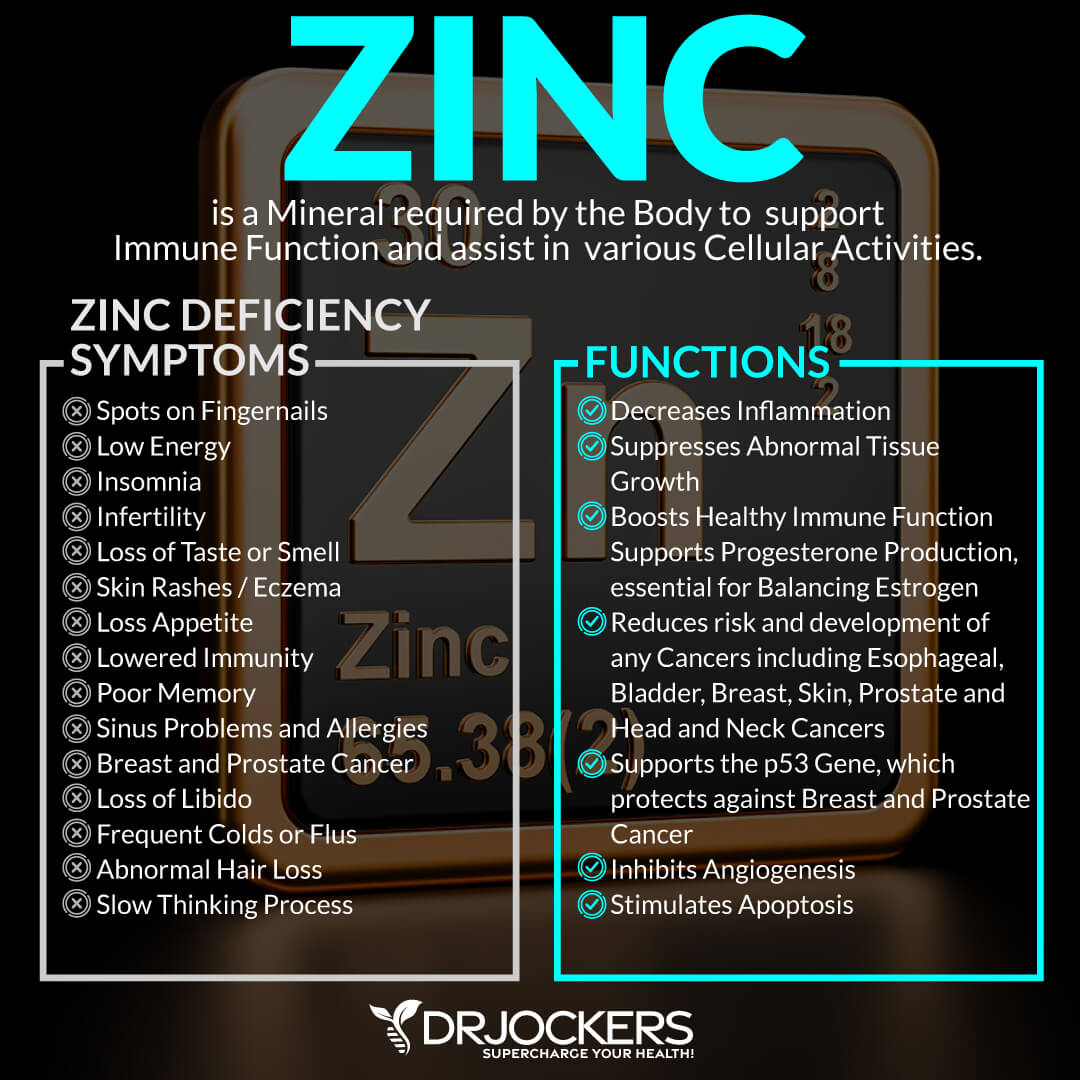
Low zinc levels may also increase hair loss, dry skin, scaly skin, weakness, and mood disturbances, which are commonly associated with hypothyroidism. Improving zinc levels may help.
Some of the best food sources of zinc include pasture-raised eggs, grass-fed beef and organ meats, wild-caught salmon, pumpkin and chia seeds, almonds, and spinach. However, zinc absorption can be reduced by factors such as high phytate intake from grains and legumes or chronic gut inflammation.
For individuals with hypothyroidism, compromised digestion, or restricted diets, targeted zinc supplementation may be necessary to restore optimal thyroid function, strengthen immune resilience, and support overall metabolic balance.
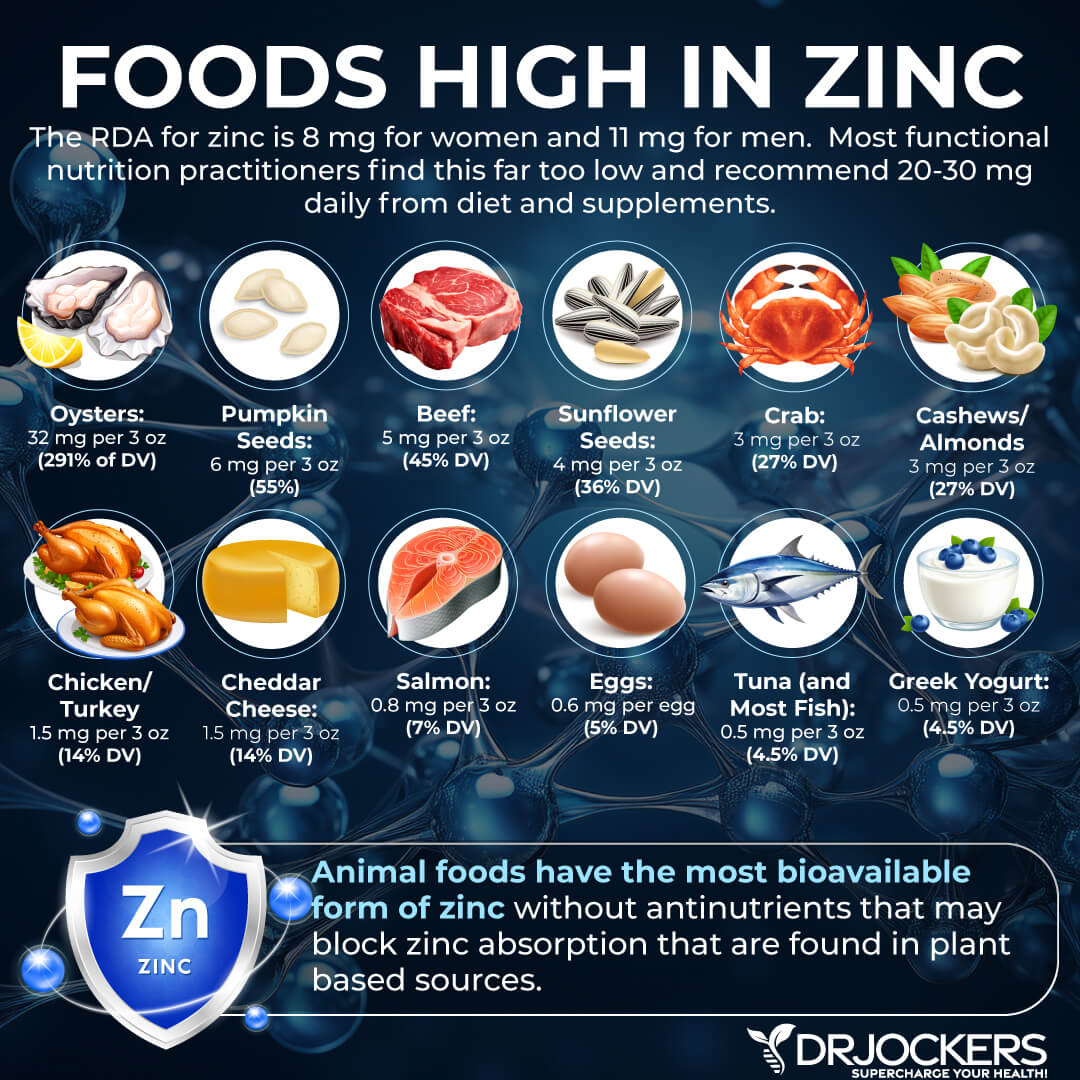
Fat-Soluble Nutrients
Achieving thyroid balance within your body depends on the communication between your hypothalamus, pituitary gland, and thyroid gland, also known as the hypothalamic-pituitary-thyroid (HTP) axis. This regulatory loop allows circulating thyroid hormones to remain balanced for normal cardiovascular health, bone metabolism, brain function, liver detoxification, and appetite control, among other health functions.
The minerals I already mentioned in this article are all important for this, but there is also a group of fat-soluble vitamins, including vitamins A, D, E, and K2, that each play a critical role in thyroid health and hormone regulation. Let’s look at them one by one.
Vitamin A
Vitamin A is essential for the production and secretion of thyroid hormones. According to a 2022 review published in Frontiers in Endocrinology (Lausanne), vitamin A may be able to modulate thyroid gland metabolism, and low levels can result in structural and functional thyroid and as possibly iodine deficiency (16).
It helps the conversion of T4 to T3, supports the regulation of TSH, and supports iodine uptake within the thyroid glands. Vitamin A deficiencies can result in poor thyroid function, hormonal imbalance, and poor metabolism.
Food sources of vitamin A include animal foods, such as liver and dairy, and plant-based provitamin A carotenoid sources, including carrots, sweet potatoes, winter squash, spinach, kale, and other dark leafy greens.
Eating enough fats is important to ensure proper absorption of vitamin A and all the other vitamins mentioned in this section from food. Additionally, some people may benefit from supplementing with vitamin A.
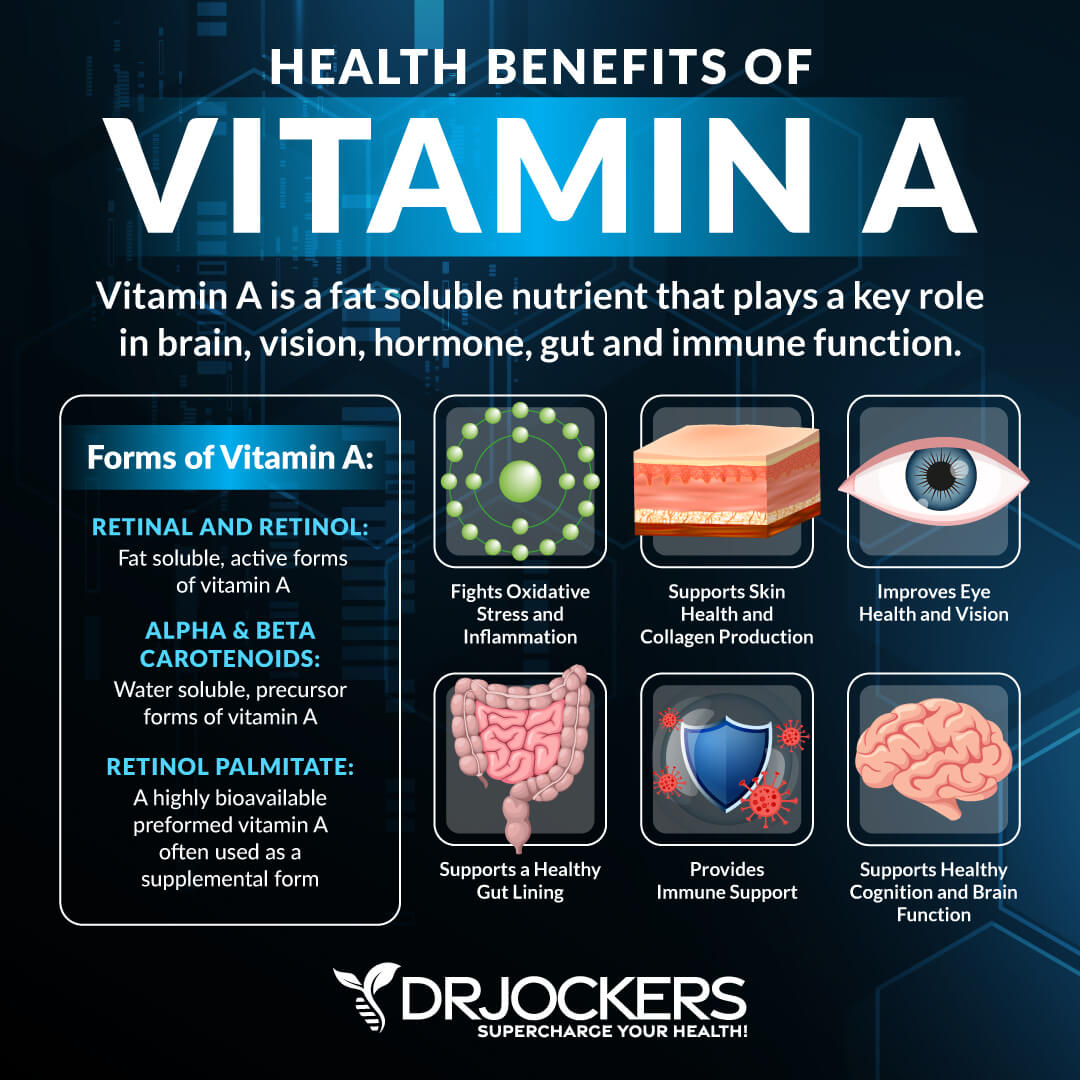
Vitamin D
Vitamin D is important for your bones, muscles, immune health, and brain function, but it’s also critical for thyroid function. Low vitamin D levels are commonly seen in autoimmune thyroid diseases, including Hashimoto’s and Graves’ disease. A 2019 study published in Medical Principles and Practice has found that low levels of vitamin D may also contribute to autoimmune thyroid issues (15).
The best source of vitamin D is sunshine. Dietary sources of vitamin D include wild-caught salmon, sardines, egg yolks, fermented dairy, and mushrooms. Additionally, most people require supplementation with vitamin D as well.
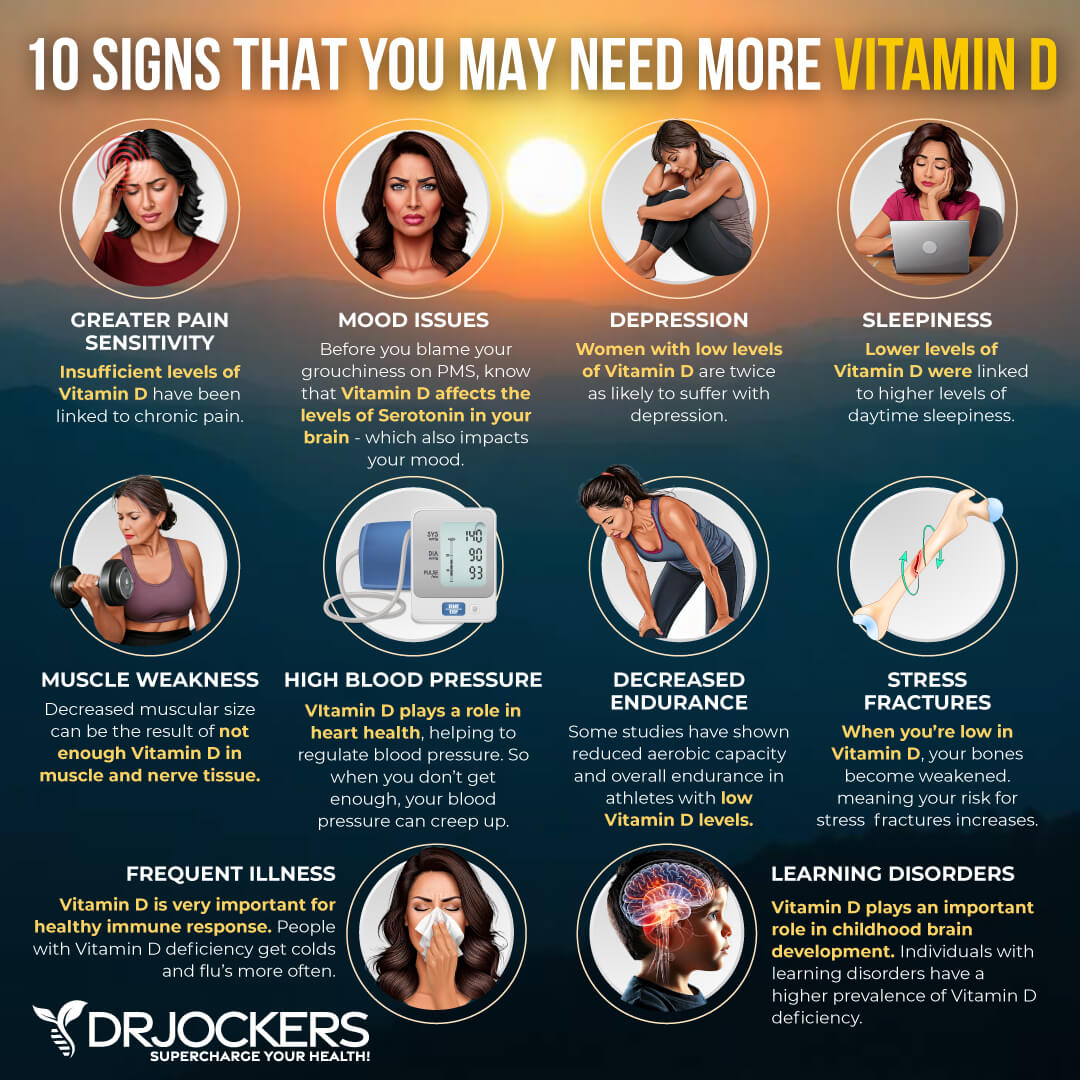
Vitamin E
Vitamin E is a powerful antioxidant that helps to reduce chronic inflammation and oxidative damage and therefore may protect thyroid health.
According to a 2024 cross-sectional analysis published in Thyroid, there seems to be a link between vitamin E intake and hypothyroidism, with adequate levels indicating normal thyroid function and low levels being linked to thyroid dysfunction (17). Vitamin E may help to normalize the immune function of individuals with thyroid problems.
Food sources of vitamin E include raw almonds, avocado, olives, extra virgin olive oil and dark leafy greens such as Swiss chard, mustard greens, and kale. Additionally, you may also benefit from vitamin E supplementation if you have low levels and thyroid issues.
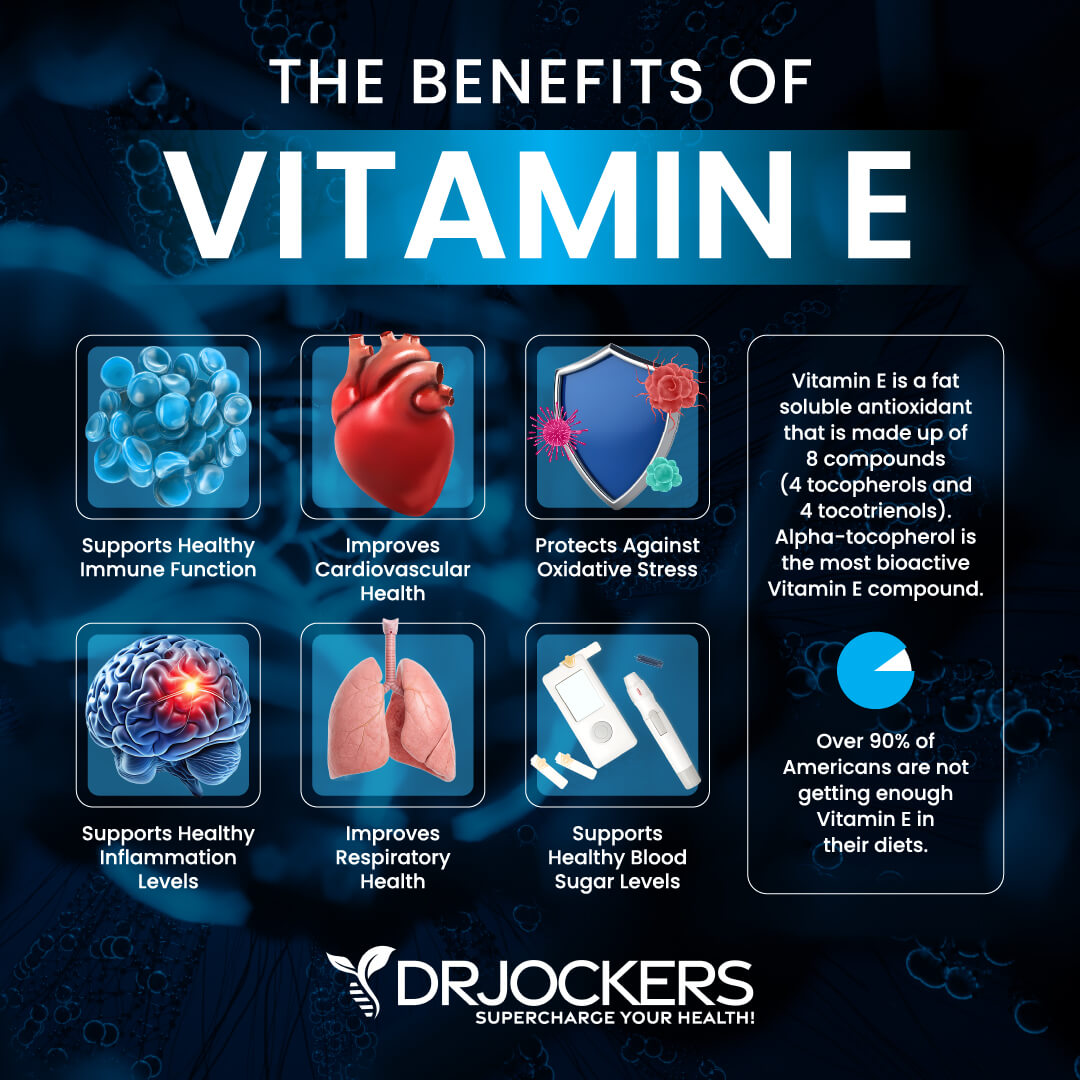
Vitamin K2
While vitamin K2 is not directly involved with thyroid hormone synthesis, it plays a critical role in supporting vitamin D activity. Additionally, according to a 2017 review published in the International Journal of Endocrinology, the interplay between vitamin D and vitamin K2 is essential for bone health and cardiovascular function, which can be impacted by thyroid diseases (18).
The best food sources of K2 include grass-fed butter, cheese, eggs from pasture-raised chickens, grass-fed beef, and fermented foods such as natto. Additionally, supplementation may be necessary and is recommended combined with vitamin D to improve its benefits.
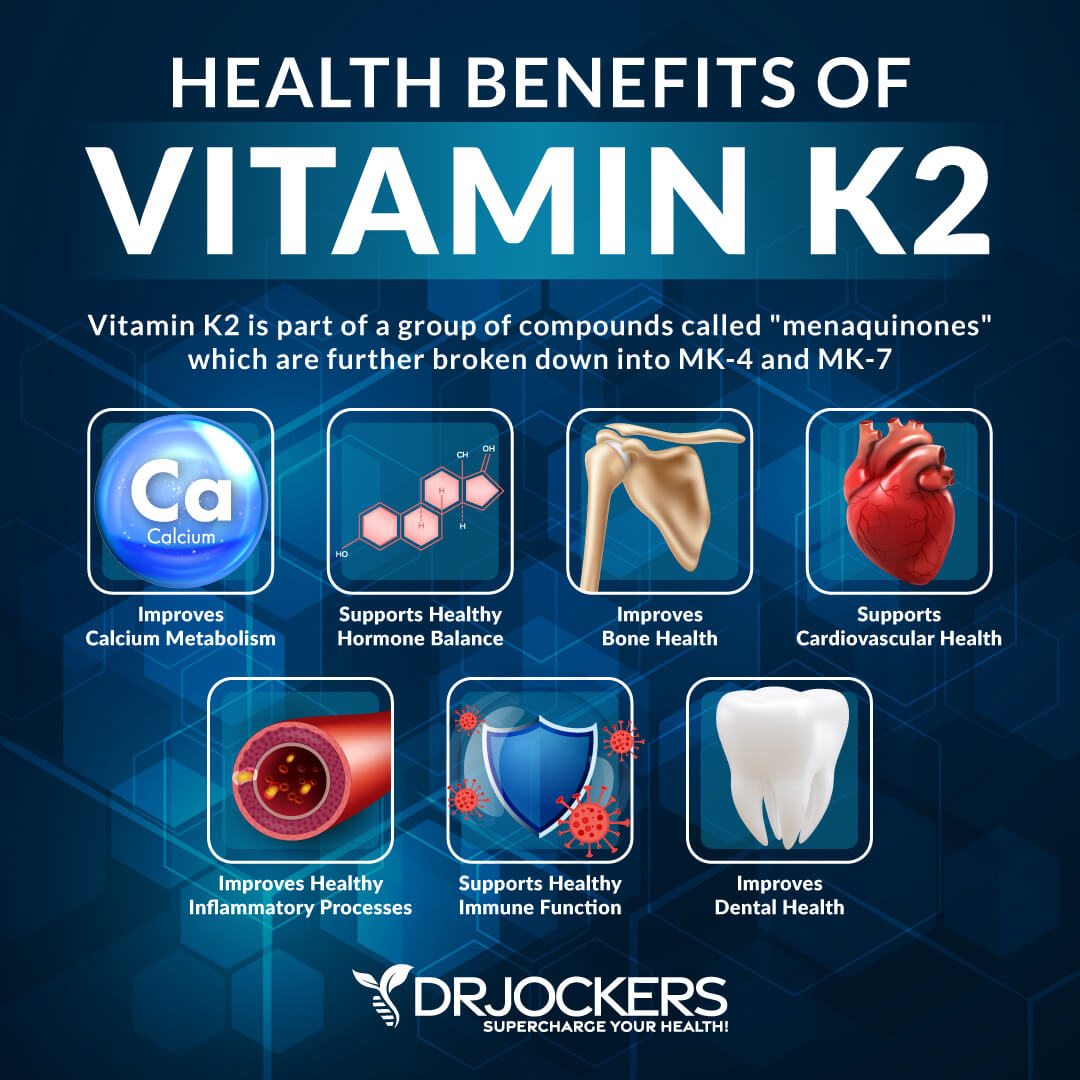
These Nutrients Combined
Together, these fat-soluble vitamins create a foundation for optimal thyroid performance. They are essential for hormone balance and also support metabolic and structural systems that are influenced by thyroid function.
If you are dealing with thyroid problems, testing for these vitamin deficiencies as potential underlying issues may be important and correcting your levels through nutrient-dense foods and supplementation may help to improve your thyroid health, energy levels, and overall well-being.
Iron
Iron is a critical mineral for both thyroid hormone synthesis and activation. It is vital for the production of the enzyme thyroid peroxidase (TPO), which is responsible for making T4 and T3. An iron deficiency manifests as iron deficiency anemia, where you have lowered red blood cells and oxygen carrying capacity.
Adequate iron levels may also help prevent the buildup of reverse rT3. T3 is the biologically active thyroid hormone that regulates metabolism, energy production, and body temperature. This means that maintaining sufficient iron is non-negotiable for proper thyroid function and overall health.
A 2024 study published in the International Journal of Molecular Sciences has linked low iron levels to an increased risk of autoimmune thyroid disorders (14). Iron deficiency can reduce the body’s ability to make and convert thyroid hormones.
It may decrease circulating T4 and T3 levels and inhibit the enzyme that converts T4 to T3, which may result in symptoms of hypothyroidism even when iodine and other nutrients are normal.
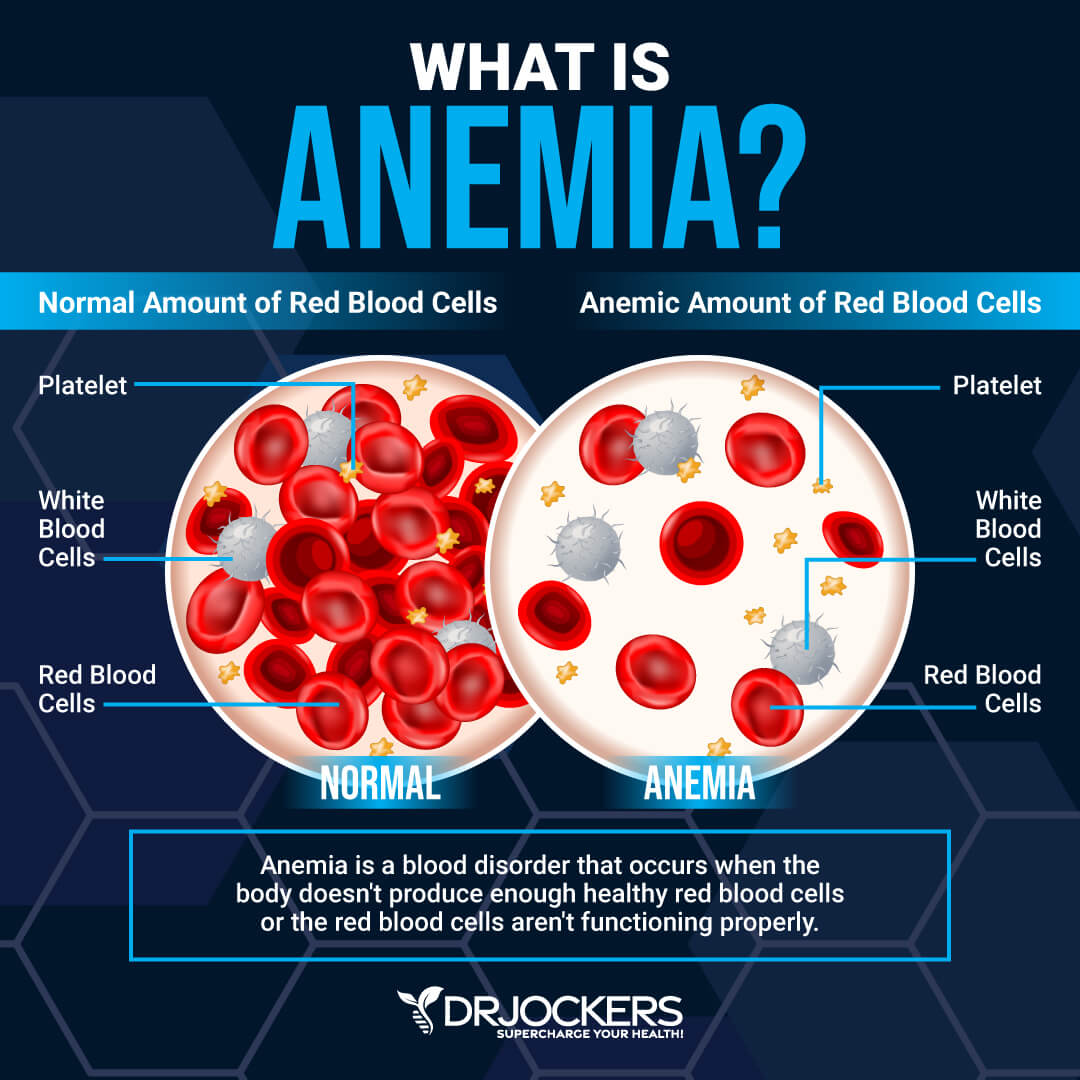
Low iron levels may also increase the body’s “fight or flight” stress response, leading to higher levels of stress hormones, including cortisol and adrenaline, which may further disrupt thyroid balance. This interplay between stress, iron status, and thyroid health shows the importance of addressing root causes of the problem, instead of just addressing symptoms.
Iron-rich foods, include dark leafy greens, grass-fed beef and organ meats, lentils, quinoa, and nuts, can help rebuild healthy levels. It’s important to pair iron-rich foods with vitamin C-rich foods such as citrus or bell peppers to improve iron absorption for thyroid activity and overall metabolic resilience.
If you have an iron deficiency, iron supplementation may be necessary, but since too much iron can result in health issues, too, it’s important to get tested for iron deficiency first. Additionally, restoring your gut health and reducing inflammation are critical because these factors may reduce iron absorption.
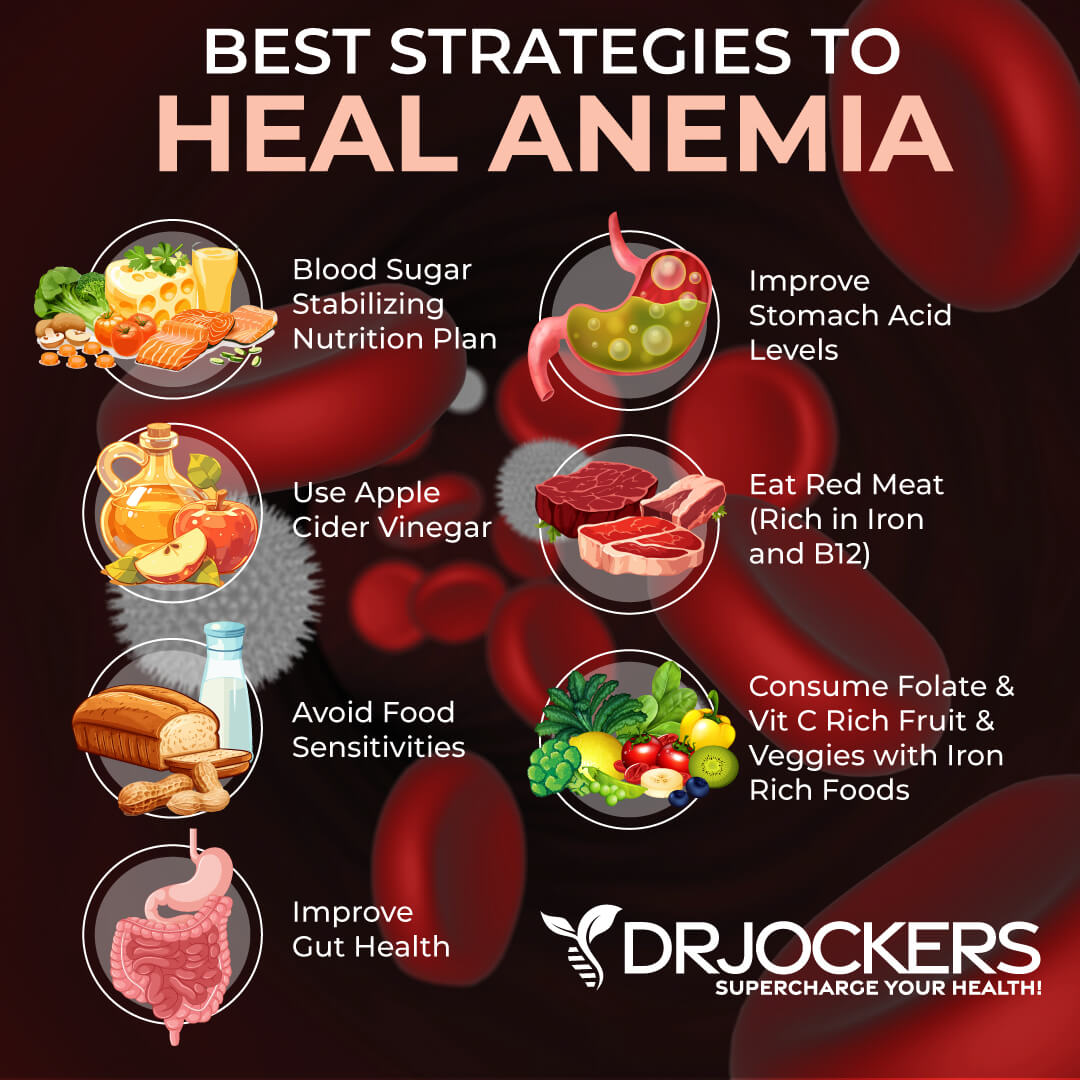
B Complex
B vitamins are important cofactors in numerous metabolic processes throughout the body. This includes processed foods that help to regulate thyroid hormone production, conversion, and utilization. Some B vitamins also directly influence thyroid health by supporting energy metabolism, hormone synthesis, and nervous system balance.
Vitamin B6 (pyridoxine) plays a particularly important role in thyroid hormone production. It may help normalize hormone output and may even alleviate some symptoms of hypothyroidism.
According to 2025 research published in PLoS One, vitamin B6 may lower TT4 levels by inhibiting inflammation (19). It may also support the body’s normal stress response, which is important for reducing immune activity and inflammation, and the risk of symptoms of autoimmune thyroid conditions such as Hashimoto’s thyroiditis and Graves’ disease.
Vitamin B12 (cobalamin) and vitamin B2 (riboflavin) deficiencies are also common in people with thyroid disease. A 2019 study published in Medical Principles and Practice has found that low levels of vitamin B12 may also contribute to autoimmune thyroid issues (15).
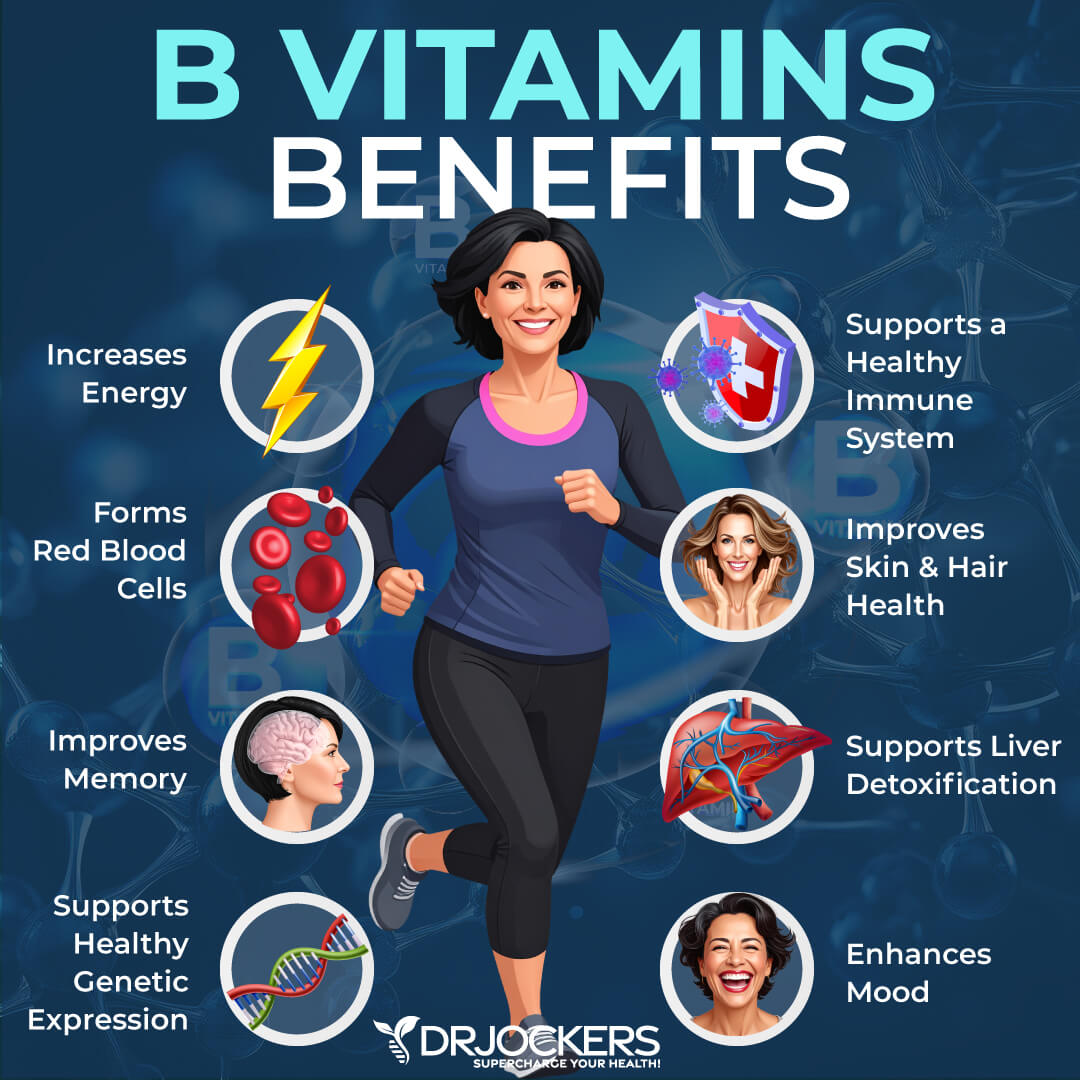
According to a 2024 study published in Nutrients, there may be a link between vitamin B2 levels, thyroid function, and the risk of Hashimoto’s disease (20).
According to 2021 research published in the Journal of Thyroid Research, vitamin B2, B9, and B12 are all essential for thyroid function, along with other nutrients, including vitamin D, zinc, iron, calcium, copper, and choline (21). Low levels of these nutrients can impair energy metabolism, result in fatigue, and worsen gut health or neurological symptoms often seen in hypothyroidism.
Chronic stress, high sugar consumption, and certain medications can deplete B vitamins, increasing the risk of deficiency and related thyroid dysfunction. Maintaining optimal levels of these nutrients is therefore critical for both thyroid performance and overall vitality.
Vitamin B-rich foods include spinach, bell peppers, eggs from pasture-raised chickens, grass-fed organ meats, pistachios, wild-caught salmon, and tuna. Additionally, a vitamin B-12 and B-complex vitamin supplement can be important to strengthen thyroid health, improve mood, support energy production, and increase overall resilience to stress.
 Tyrosine
Tyrosine
Tyrosine is a non-essential amino acid that plays a critical role in the synthesis of thyroid hormones. According to a 2021 research published in Seminars in Cancer Biology, tyrosine kinase inhibitors play a role in thyroid function and thyroid hormone metabolism (22). Tyrosine serves as the structural backbone for both T4 and T3, and with the help of iodine, it helps to form these hormones.
Low levels of tyrosine can impact hormonal regulation and cause fatigue, low metabolism, and mood imbalances. Tyrosine is also a precursor to key neurotransmitters such as dopamine, norepinephrine, and epinephrine; thus, not having enough can impact mood, motivation, and stress resilience.
Chronic stress can deplete tyrosine levels and impact hormone synthesis, brain function, the stress response, and dopamine activity. Chronic stress and tyrosine depletion can disrupt the communication within the HPA-T axis, resulting in hormonal imbalance and poor metabolic function.
Food sources rich in tyrosine and supportive of thyroid health include eggs, wild-caught fish, grass-fed beef, chicken, turkey, almonds, pumpkin seeds, and avocados. Additionally, supplementing with tyrosine can increase thyroid hormone levels and reduce symptoms associated with low thyroid function, such as fatigue, depression, and poor immunity. Supporting tyrosine levels through diet or supplementation may improve thyroid and neurological health.
The supplement that I use that has kelp and iodine-boosting sea vegetables, tyrosine, thyroid glandulars, L-selenomethione, and more to support thyroid function is called Thyroid Strong.
Vitamin C
Vitamin C is an antioxidant that you may know because of its benefits for immune health. It is also important for thyroid and adrenal health. According to a 2023 research published in Endocrinology, Diabetes & Metabolism, vitamin C may be beneficial for improving autoimmune thyroid disease (23). A 2023 study published in BMC Aenestology, vitamin C may help to reduce adrenal activity and cortisol levels in trauma patients (24).
Low levels of circulating antioxidants tend to be low with thyroid issues, which can make them more vulnerable to oxidative stress and chronic inflammation. In hyperthyroidism, increased thyroid hormone production can increase inflammation and free radical damage. Vitamin C may help to neutralize these harmful molecules, which can improve hormonal balance and thyroid function.
Vitamin C may also support adrenal function. Low levels of vitamin C can disrupt adrenal function and the HPA axis and reduce the ability to manage stress. Since the adrenals and the thyroid work together to balance stress and metabolism, vitamin C is important for both to reduce hormonal burnout.
Foods rich in vitamin C include bell peppers, citrus fruits, strawberries, kiwi, broccoli, and leafy greens. Additionally, you may also benefit from vitamin C supplementation to improve thyroid hormone levels, digestive health, immune health, and resilience.
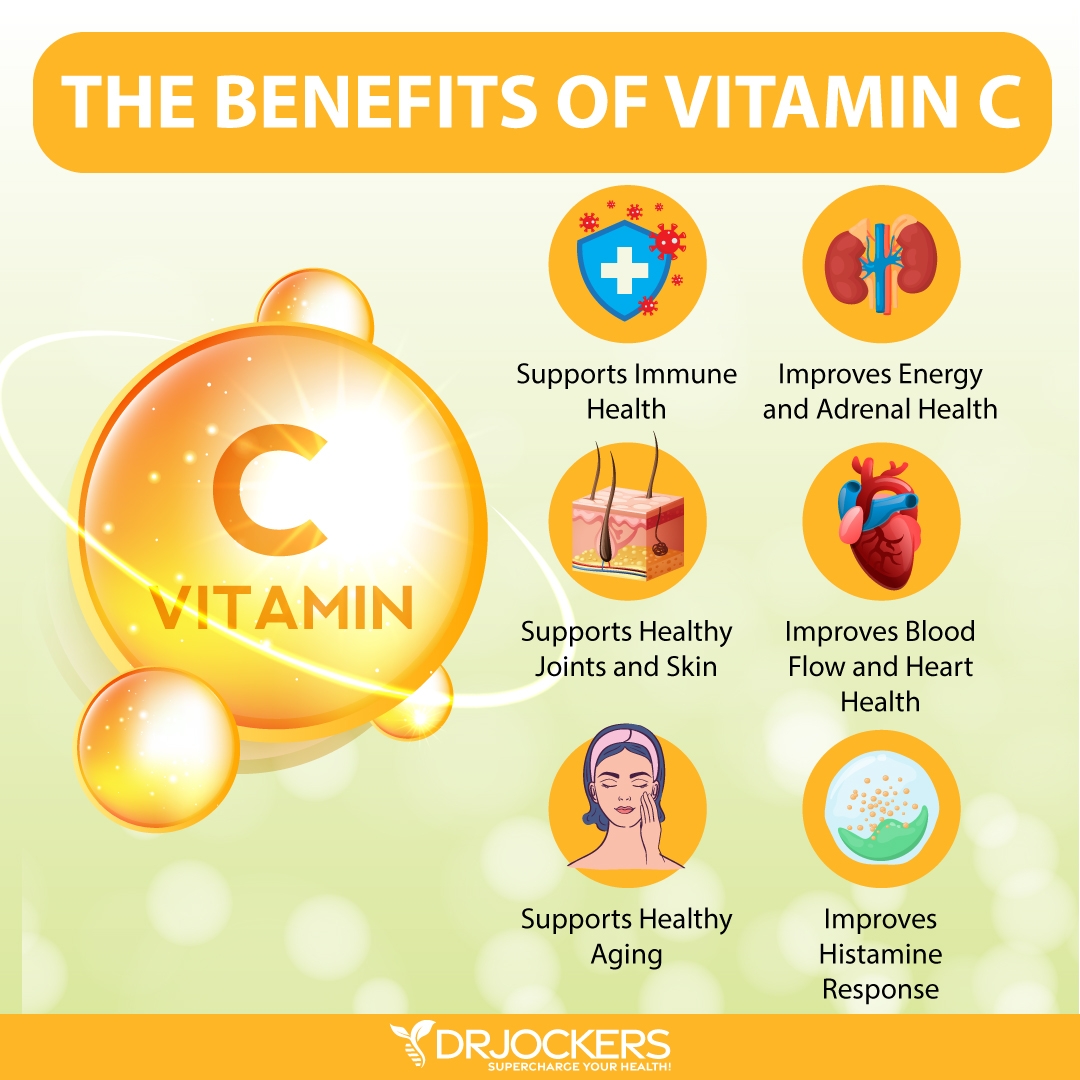
Omega-3 Fatty Acids
Omega-3 fatty acids are essential fatty are critical for reducing inflammation, supporting antioxidant defenses, reducing oxidative damage, and protecting thyroid health. The problem is that the typical modern Western diet is low in omega-3 fatty acids, but it is high in inflammatory omega-6 fatty acids.
The optimal ratio should be around 2:1 or 3:1, but in many people, we see 15:1 or higher, er which can cause chronic inflammation. Chronic inflammation can increase the risk of autoimmunity and autoimmune thyroid conditions, including Hashimoto’s thyroiditis and Graves’ disease.
Omega-3s, especially eicosapentaenoic acid and DHA (docosahexaenoic acid), can improve thyroid hormone activity and support brain and liver function. Restoring a healthy omega-3 and omega-6 balance can reduce inflammation and improve hormonal health. According to a 2022 study published in BMJ, omega-3 supplementation may reduce the risk of autoimmune diseases, including thyroid issues, by 15 percent (25).
Foods rich in omega-3 fatty acids include wild-caught salmon, sardines, mackerel, anchovies, other fish and seafood, grass-fed beef, and pasture-raised eggs. Additionally, omega-3 fish oil supplements can be important to support your levels and reduce inflammation.
It is also critical that you reduce processed seed oils, such as corn, soybean, and canola oils, and foods made with seed oils, which are high in omega-6 fatty acids and can throw off balance.
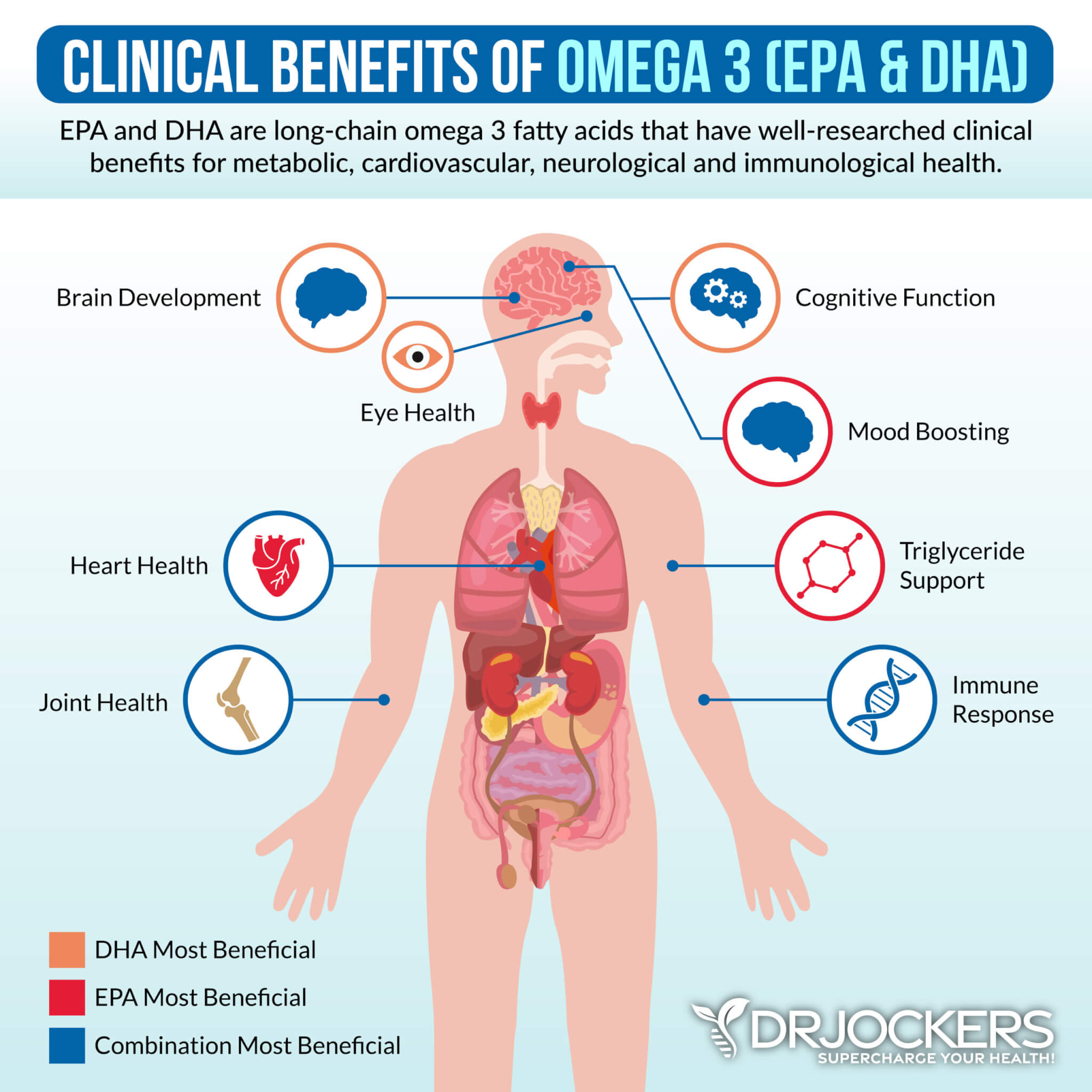
Thyroid Bovine Glandulars
Glandular supplement from bovine (cow) thyroid concentrate is a popular alternative for treating conditions that affect the adrenal and thyroid glands. Thyroid bovine glandulars are an extract that comes from the tissue of the hormone-producing thyroids of cows.
Because these supplements contain nutrients for optimal thyroid function, supplementation with thyroid bovine glandular supplements may be used to improve hypothyroidism. According to 2023 research published in Integrative Medicine (Encinitas), thyroid bovine glandular therapy may be beneficial for thyroid health, as well as adrenal, pancreatic, thymus, liver, and other glandular health (26).
This is a natural hormone supplement that may boost the availability of thyroid hormones T4 and T3. Supplements for supporting adrenal repair can also help people experiencing symptoms of adrenal fatigue in combination with a sluggish thyroid. Glandular support provides antioxidants to repair damaged tissue and normalize cortisol levels for a healthy thyroid.
The specific thyroid bovine glandular supplement I use and recommend is Thyroid Strong. It is made with kelp and iodine-boosting sea vegetables, thyroid glandulars, L-selenomethionine, and more to support thyroid function. It is a comprehensive freeze-dried, BSE-free, bovine, multiglandular, mineral, and herbal formula to support healthy thyroid function.
It provides the essential nutrients and herbal and glandular support for the production of thyroid hormones. Clinically, I use this product when I see that the patient is struggling to produce thyroid hormones. This can be indicated by an elevated thyroid-stimulating hormone (TSH) or low T4 or T3.
I recommend taking 1 to 2 capsules first thing in the morning, away from food or as directed by your health care practitioner. For an advanced dose, you may use 3 to 4 capsules first thing in the morning, away from food or as directed by your health care practitioner.
However, it’s important that you don’t take more than recommended. If you are using a thyroid bovine glandular supplement is important not to exceed the recommended dose of thyroid bovine glandular supplementation because there may be unknown health dangers associated.

Final Thoughts
Your thyroid plays an important role in your metabolism, energy production, temperature, and even your heart, brain, and digestive health. Your thyroid function and its metabolic roles heavily rely on nutrient feedback signals.
Without specific nutrients, your thyroid cannot function properly, which can lead to chronic symptoms, thyroid disease, and other health issues. I recommend following my tips in this article and improving your micronutrition levels with the top nutrients to improve your thyroid health naturally.
If you want to work with a functional health coach, I recommend this article with tips on how to find a great coach. Our website offers long-distance functional health coaching programs with our world-class team of health coaches. For further support with your health and other goals, just reach out—our fantastic coaches are here to support your journey.
Inflammation Crushing Ebundle
The Inflammation Crushing Ebundle is designed to help you improve your brain, liver, immune system and discover the healing strategies, foods and recipes to burn fat, reduce inflammation and Thrive in Life!
As a doctor of natural medicine, I have spent the past 20 years studying the best healing strategies and worked with hundreds of coaching clients, helping them overcome chronic health conditions and optimize their overall health.
In our Inflammation Crushing Ebundle, I have put together my very best strategies to reduce inflammation and optimize your healing potential. Take a look at what you will get inside these valuable guides below!
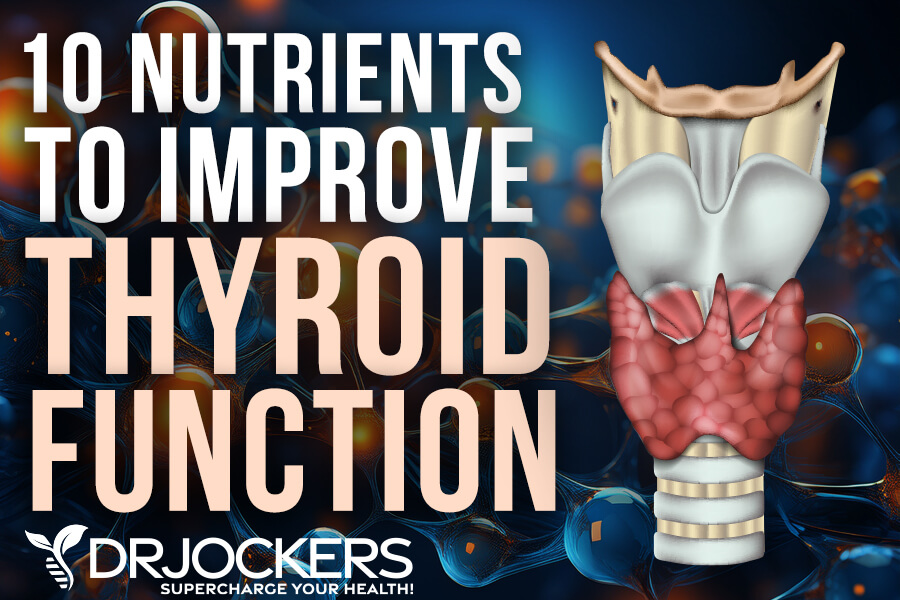
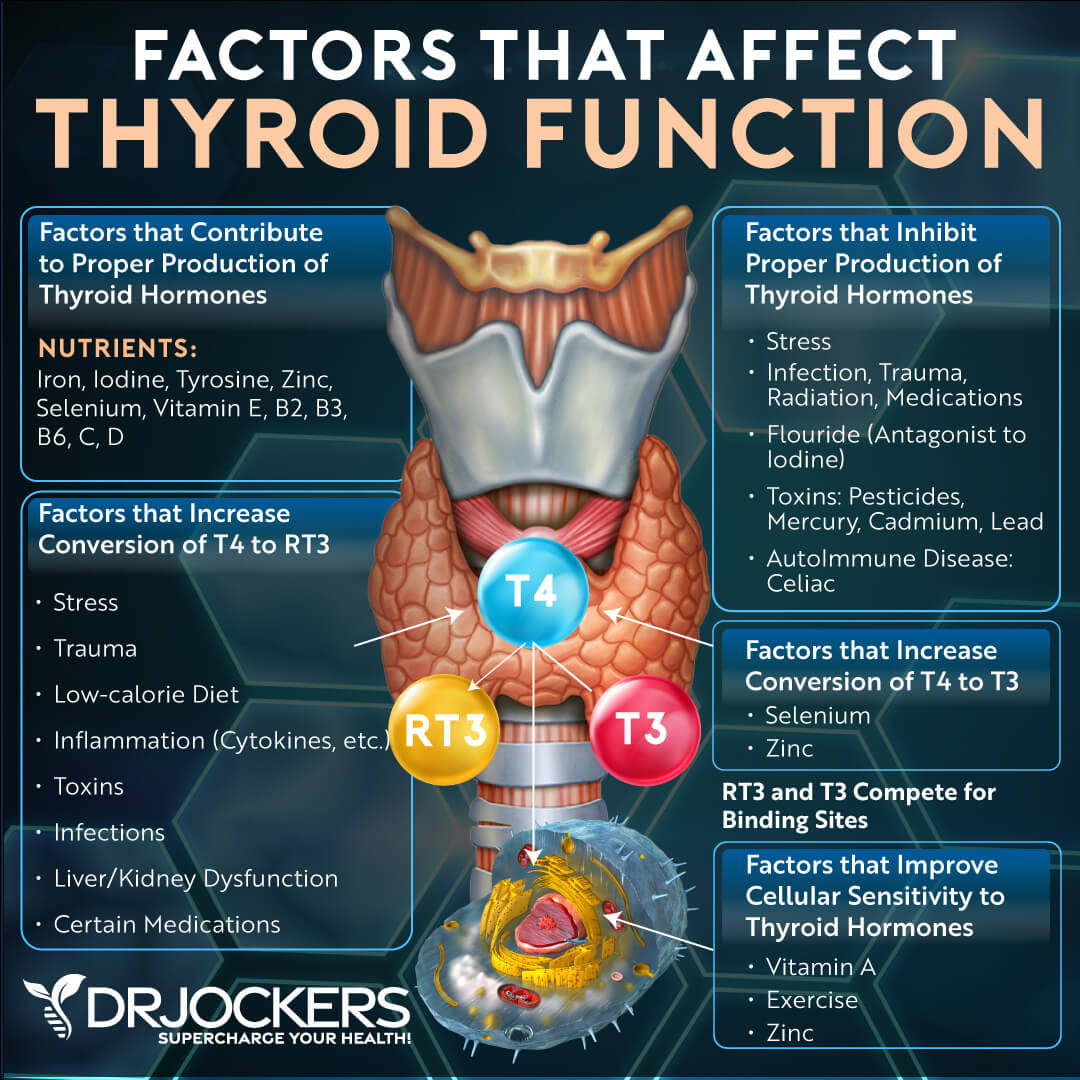




Thank you so much. Very helpful.
Thanks for reading!
Well, my thyroid is just about totally annihilated by hashimoto’s, but this is still great information for continuing management to support thyroid hormone replacement therapy.
Great recipes too. Thank you.
Yes Helen, here is another great article on Hashimoto’s: https://drjockers.com/hashimotos-thyroiditis/
Most thyroid conditions, including Hashimoto’s, can be linked to to an underlying iodine deficiency
Under the section entitled “Symptoms of Thyroid Dysfunction”, in the first sentence, you state Hypothyroidism is too much thyroid hormone, then in last sentence indicate Hypothyroidism is low levels of thyroid hormone. Something is not right here, unless I am misinterpreting.
Thanks for pointing that out Amy, it was a typo!
Hello, I also noticed something additional to be pondered, where preferably Iodine, Halogens are a big part of the story of reversing HypoT and also many lung issues in my friends, coworkers and even Chiropractor, David! Haha he said he ordered food-based Iodine 🙂
Chloroform gas:
Iodine competes not only with Fluoride/ine but Bromine and Chlorine and it’s not just found in bleach. While many may already be avoiding breads for various reasons, there are only select companies who don’t make flour with Bromine.
We should rethink Life before sanitizing anything around.
How do you address Hyperthyroidism?
By addressing the underlying causes April! https://drjockers.com/hyperthyroidism/
So is hypothyroidism high or low levels?
Hypothyroidism is low thyroid levels. But it can be diagnosed by observing high TSH levels. TSH is a hormone produced by the pituitary gland of the brain and it functions to signal to the thyroid to produce thyroid hormones. High TSH would indicate that the brain is communicating but the thyroid is unable to fulfill the request.
My T4 has been constantly dropping but my TSH is still normal. T4 2 points below normal. Dr. Wants me to start medicine but is scratching his head for an answer being TSH is not rising. Says I’m not textbook. Feel like taking meds is a bandaid and need to find root cause.
Thoughts or advice?
Sorry to hear this! I would be sure to take the Thyroid Strong and follow the suggestions in this article: https://drjockers.com/hypothyroidism-nutrition-plan/
You don’t have to publish this but I think the arrow is going the wrong way in diagram above…. Dark green veg. to ALA
Yes that is correct Dan. We will fix that! Thanks!
In my experience with clients and myself, it’s early childhood trauma that disrupts the HPA axis and therefore the thyroid. Sadly, this is rarely considered or addressed.
Yes very important to address those ACE’s.
Is it possible iodine causing hypothyroidism? I have been taking Lugol’s solution + selenium for a year and my numbers worsen: my T4 is very low, TSH very high, so is estrogen, testosteron and DHEA.
Hello Margaret, no iodine will not lead to hypothyroidism. If your numbers have lowered it is most likely due to a chronic toxin exposure or an infection that is causing your body to respond in this way.
so happy and grateful you are helping to get info out there to help us all become better at self care and prevention. I am wondering why, in talking of good sources for omega 3s, you did not mention flax seed oil?
Yes flax seed oil is a great source of small chain omega-3 fatty acids – ALA. However, it is challenging for the body to convert ALA into the long-chain omega 3 fatty acids, EPA and DHA. The best sources for those include blue-green algae, wild-caught seafood and grass-fed meats.
Patients often find their reverse T 3 goes too high using bovine glandulars. What is the reason you mention this but not porcine?
Hello – we have been using these for years and have not seen high rT3 from them. I have not seen any studies saying this either. So not sure where you got that info.
This may sound like a silly question but my daughter was told by her endo that she no longer has a thyroid due to hashimotos thyroid…in the absence of a thyroid,or any part if it’s still there,would any supplement help her?presently she takes armour and has been for over 15 years….Is there any value in taking supplements?
Yes absolutely, the thyroid strong would be very helpful!
I’ve heard that people with hashimotos should not take iodine supplements, I can’t remember why or repeat what I heard. Can you explain why?
Hello Sandy, yes they can absolutely take iodine and often need it. However it is important for those with Hashimoto’s to take selenium – at least 100-400 mcg of selenomethionine to help recycle the H2O2 production from thyroid hormone production. Also, it is important for people with Hashimoto’s to fix their gut, optimize vitamin D & zinc levels, omega 3’s and glutathione.
I am Hyperthyroid and all this information is not for me! If I took Iodine it could cause me great harm. I don’t understand when people talk about Thyroid they can’t be more direct “How to deal with Hypothyroidism or How to deal with Hyperthyroidism “ Not just here for Thyroid healing! To me if you can’t differentiate between the 2 you do not know anything about the Thyroid!
Hello Shirleen, sorry to hear about your issues. Hyperthyroidism is always an autoimmune condition so we consider it an immune problem and not necessarily a thyroid problem (although the thyroid is impacted). Here is a helpful article for you: https://drjockers.com/hyperthyroidism/
Dr. Jockers, I had thyroid cancer in 2002 and had my thyroid completely removed. My TSH is always undetectable. After many years of increasing T4 because I wasn’t feeling well enough, my neurologist recommended lowering my T4 and adding T3. My endocrinologist said doctors don’t learn about T3 in medical school, but was willing to try it. This has helped put things back into balance a bit.
But I have always wondered: if I have no thyroid whatsoever, how will it benefit me to take selenium, iodine, and some of the other supplements you recommended?
Hello Mary-Beth,
Yes if you don’t have a thyroid these nutrients have less importance however, selenium is still really key for glutathione enzymes in the body so you should prioritize that still!
Iodine &/or Selenium deficiency might give ‘speed bumps’ on finger nails not all of them just one at a time, I used to get them until I took Brazil nuts for selenium and dried seaweed for iodine.
Personally I would not care if I had bumps on my finger nails or not, but if it is a indicator of lack of nutrients for good health, then it is worth making the change.
Thanks for sharing this Eric! Blessings!
so many symptoms can be caused by different things…
I have hypothyroidism and have been on various thyroid medications for over 25 years, but I still feel less than optimal (sluggish, hair thinning, sensitive to cold & hot temps, gain weight easily, horribly dry & rough skin, & can’t seem to sleep longer than 5-6 hrs./night.). Is it OK to take your Thyroid Strong product even though I’m on thyroid medication, &, if so, can I take it first thing in the morning at the same time I take my thyroid medication?
Yes many people do take the Thyroid Strong with thyroid meds. I would start with 2 caps on an empty stomach and see if you notice improvement.
HI! Dr. Jockers
I have been reading your books and papers for a long time. Have used your recommendations for a long time. I have learnt so much from you. So, wish and pray that others would come around. I feel like I’m all alone some times. Family ask me for advice but, keep doing same thing!!! I tell them what will help them but, don’t want to give up their life style.
Thank you, for all you are doing for people
Thank you for all your support Beverly! Blessings!
My husband had thyroid cancer 5 years ago so his entire thyroid was removed
His taking the thyroid Meds and his tests are normal
But I see he gets irritated for little things, gain a little weight has high blood pressure , he is 70 very sensitive at cold
I am worried about what effect those Thyroid meds .
Is anything in addition should take naturally or watch for ?
I have been receiving your e mail regularly and really appreciate your clarity in your information about health you send and spread
Thanks a million
Vicky
Sorry to hear about this! I would recommend reaching out to our functional health coaching team for medical related questions: https://drjockers.leadpages.co/long-distance-coaching-dr-jockers/
I have Hurthle Cell thyroid cancer but I did not remove my thryoid. I thought that maybe I could beat it by changing my diet. But now I have also been diagnosed with Crohn’s, so I think it will be difficult. I think I am having a lot of autoimmune disorders and I don’t know where to start! I am reading a lot of books about inflammation and the gut. I have my ultrasound in the middle of January for my thyroid, so I will find out if the cancer is getting better or worse. I guess I just wondered if you had any suggestions for me. thank you…Marlo
Sorry to hear about this! Here are some helpful articles:
Thyroid Nodules: https://drjockers.com/thyroid-nodules/
Crohn’s Disease: https://drjockers.com/crohns-disease/
Some functional medical drs. say taking iodine can be like throwing gasoline on a fire for people with hashimotos. Why is that?
Thanks for this very comprehensive and beneficial article!
The key with iodine, is that it needs to be balanced with selenium to create the selenoproteins including GSH that help to neutralize the H202 produced in the process of creating thyroid hormones.
Hi! Thank you for this article.
I am 22 yrs old (female) & have low thyroid levels – my Dr told me I have Hashimotos. I wish to heal naturally & don’t necessarily want to be on medication.
The main thing I struggle with is losing weight… eating a diet high in these foods you listed in the article & taking your Thyroid Strong capsules help with weight loss? Do you have any other tips to recommend?
I do low impact exercise to reduce stress – long walks outside, Pilates, yoga & meditation.
Thanks so much! ☺️🙏🏼
Yes absolutely Tayah, here is a helpful article: https://drjockers.com/balance-blood-sugar/
Do part of this apply if the issue is Hyperthyroidism or Graves Disease? Can similar strategies (but tuned for hyper) help reverse graves disease well enough?
thank you Dr Jockers
Yes here is a helpful article on hyperthyroidism: https://drjockers.com/hyperthyroidism/
I had my thyroid removed over 27 years ago. Since I take thyroid medication, would any of this information help me or because I no longer have a thyroid, none of these options would work?
I also question if my yearly bloodwork being in the acceptable range truly means the mediciation is adequately providing the necessary levels my body needs.
Hello Diana, yes many people without a thyroid have seen great results with our Thyroid Strong supplement: https://store.drjockers.com/products/thyroid-strong
Hi, I have I think Hypo, I didn’t want to take medicine and I Dr. didn’t want me to see him anymore so I suggested to go to my regular Dr. it been almost 2 years I’m doing this on my own can’t afford Functional practitioner or any Dr. I’m bloated,gaining weight never been this fat before,tired sleep only 4-5 hours, I just wish someone can help what to eat and drink and what supplements will help me get this over with, I would appreciate the help if you can respond! Thanks Gerry
Very sorry to hear about this! We have a detailed article for you here: https://drjockers.com/hypothyroidism/
Everyone seems to talk about hypothyroidism, as it’s so common. Tt would be great to also get some information regarding hypERthyroidism. Things like iodine, kale, etc. can actually serve to make hyperthyroidism worse, so some nutrition info would be ideal. Thank you for all you do!
Yes we have a great article on hyperthyroidism here: https://drjockers.com/hyperthyroidism/
Hi Dr. Jockers,
I went to the endocrinologist because the CT scan of my chest found a small nodule on my thyroid lobe gland. The endocrinologist told me that sometimes a ct scan shows that you have something and it’s not there and he said he couldn’t feel my thyroid lobe gland nodule.
He ordered a thyroid ultrasound to check to see if I really have a thyroid lobe or nodule.
I told the endocrinologist during my first visit that I wanted to do a full thyroid panel and I wanted to check my T3, T4, free T3, free T4, thyroid antibodies and thyroglobulin. He told me that I didn’t need to do any other test to check my thyroid except for the TSH. He said the TSH is the best test to check the thyroid and told me that tests can be abnormal. I asked him if I have hyperthyroidism or hypothyroidism. He told me that I don’t have either and told me that my thyroid is fine. I told the endocrinologist that they give people who have a thyroid lobe gland nodule radioactive iodine to shrink their thyroid nodule, but radioactive iodine has a lot of side effects. The endocrinologist told me that radioactive iodine is only for if you have cancer and told me that he would do “watchful waiting” of my thyroid lobe gland nodule to see if it grows.
I told the endocrinologist that I wanted to do a full thyroid panel and I read a thyroid guide that said sometimes people are sick and they don’t know that their thyroid is the reason they are not feeling well because the doctors don’t do a full thyroid panel and the doctors only check their TSH. The endocrinologist told me not to believe everything that I read online. If someone has a thyroid lobe gland nodule, an endocrinologist should do a full thyroid panel.
During my second visit, I asked the endocrinologist to check my T3 and T4 again during my second visit. He checked my T3. The results of my T3 test said my T3 is 164. The range for T3 is 82 to 158. I went back to the endocrinologist when I got my test results. The endocrinologist said tests can be abnormal and told me that my T3 is a little off and he will redo my T3 is a couple of months. My T3 levels is probably going to be the same in a couple of months.
I asked the endocrinologist why is my T3 high and why do I have a thyroid lobe gland nodule if I don’t have hyperthyroidism or hypothyroidism and my thyroid is fine like he said . He didn’t answer. My thyroid is making hormones because my T3 is a little high.
I am a vegan and I take a multivitamin every day.
What should I do about my T3 test result and my thyroid lobe gland nodule?